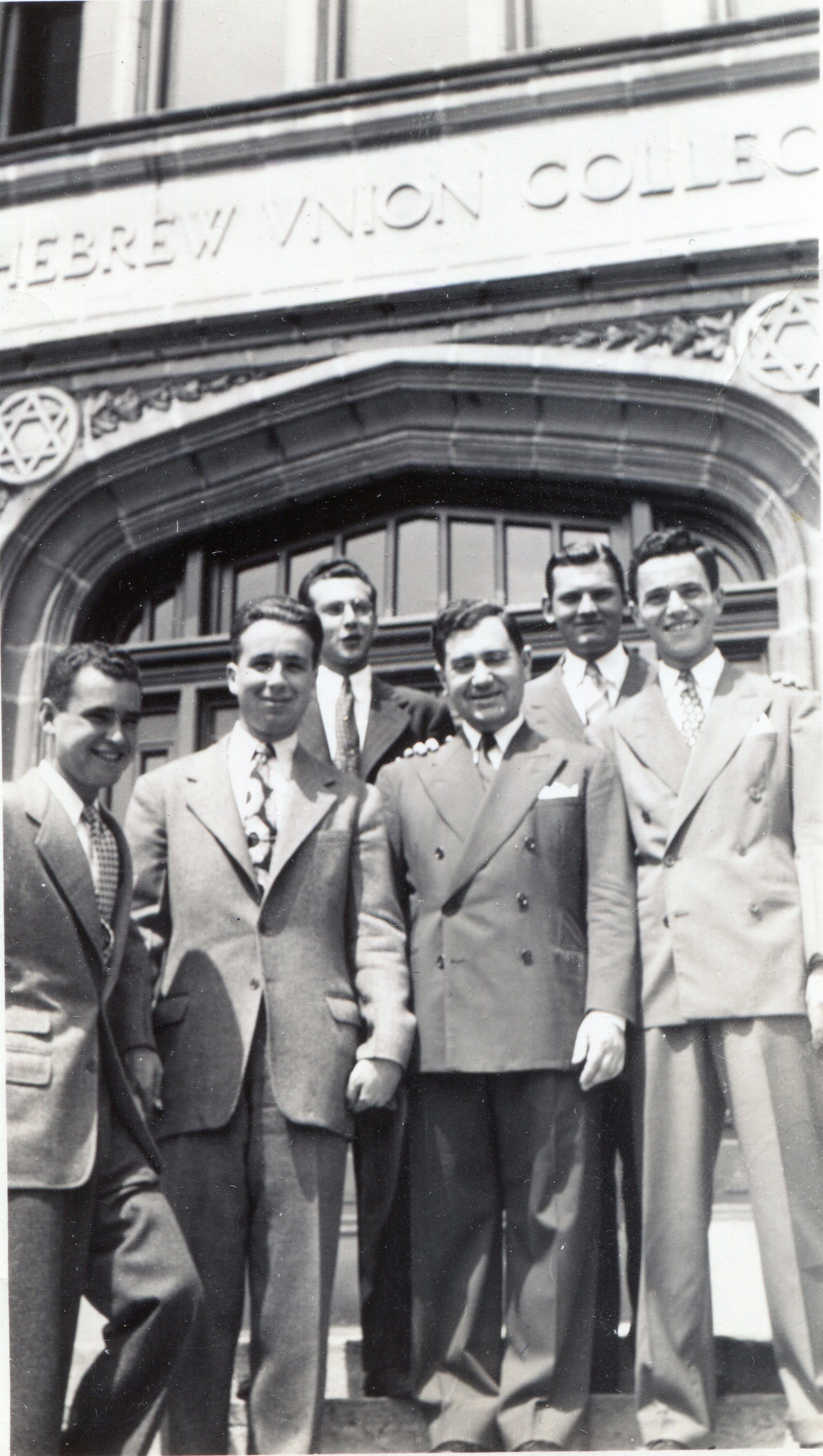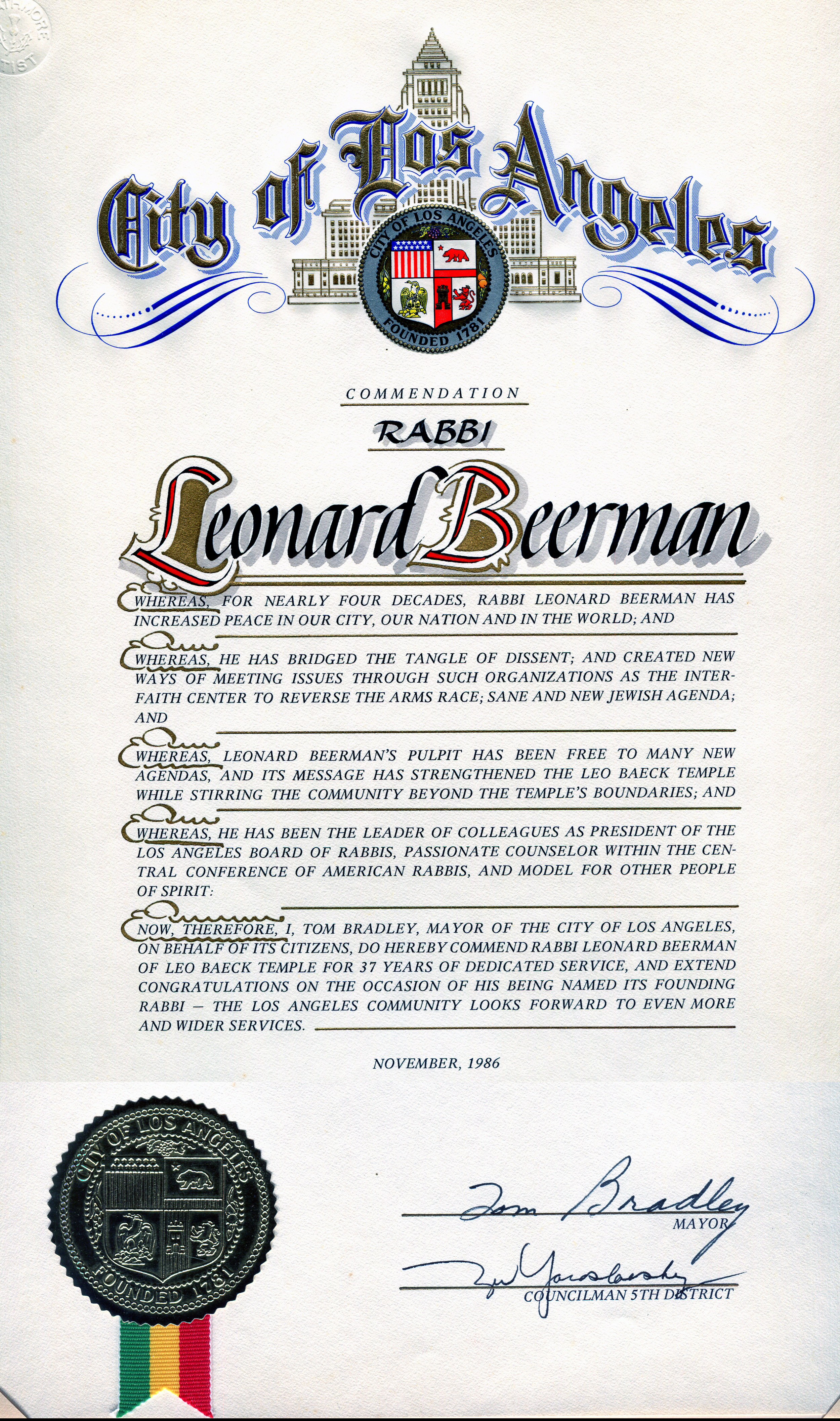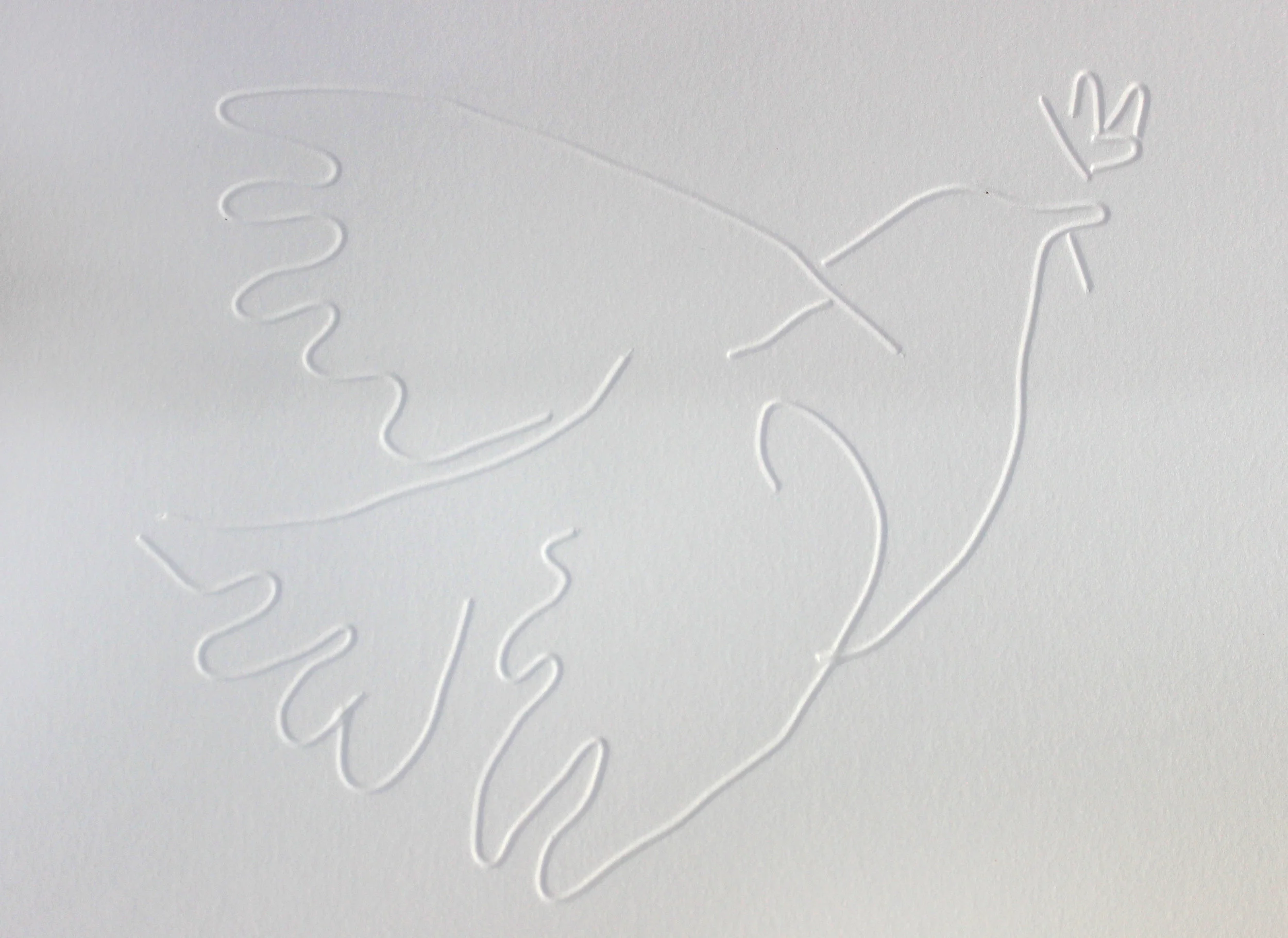
Life of Leonard I. Beerman
Leonard I. Beerman (April 9, 1921–December 24, 2014) was born in Altoona, Pennsylvania. He received a B.A. from Pennsylvania State University and two degrees—a Masters in Hebrew Letters (1949) and an honorary Doctor of Divinity (1974)—from Hebrew Union College-Jewish Institute of Religion. He also was honored with doctoral degrees from Lafayette College (2001), and Washington & Jefferson College (2007). The Founding Rabbi of Leo Baeck Temple in Los Angeles, California, he served that congregation for 37 years until his retirement in 1986.
Throughout his career, he was involved in issues of peace and social justice, co-founding the Interfaith Center to Reverse the Arms Race, serving as Vice President of the Jewish Peace Fellowship, the Blue Ribbon Committee for Affordable Housing in the City of Los Angeles and as a board member of Human Rights Watch (California South) and Death Penalty Focus of California. During his career, Rabbi Beerman was a vital member of organizations such as SANE, the International Center for Peace in the Middle East, the Greater Los Angeles Partnership for the Homeless, the Jewish Fund for Justice, the Workmen’s Circle and the Nuclear Age Peace Foundation, as well as the U.S. Interreligious Committee for Peace in the Middle East, the Los Angeles Institute of the Humanities, and the Abrahamic Faiths Peacemaking Initiative. He served on the Institutional Review Board of Cedars-Sinai Medical Center and as the beloved Rabbi-in-Residence at All Saints Church in Pasadena.
Leonard married Martha Fechheimer (1923–1986) in 1945, and they had three daughters: Judith (Neil O’Hanlon), Eve and Elizabeth (Lewis Rothbart). In 1988, he married Joan Willens and welcomed her children Elara and Scott (Marina) into the family. He was a loving grandfather to Matthew, Kate (1985–1993), Emily, Michael, Emma, Leo and Evan.
“...one either collaborates with the enemy, with whatever it is, with whatever is miserable or inhumane, with whatever is unjust, with whatever demeans the life of any of God’s children, or one joins the resistance.”
Rabbi Leonard I. Beerman
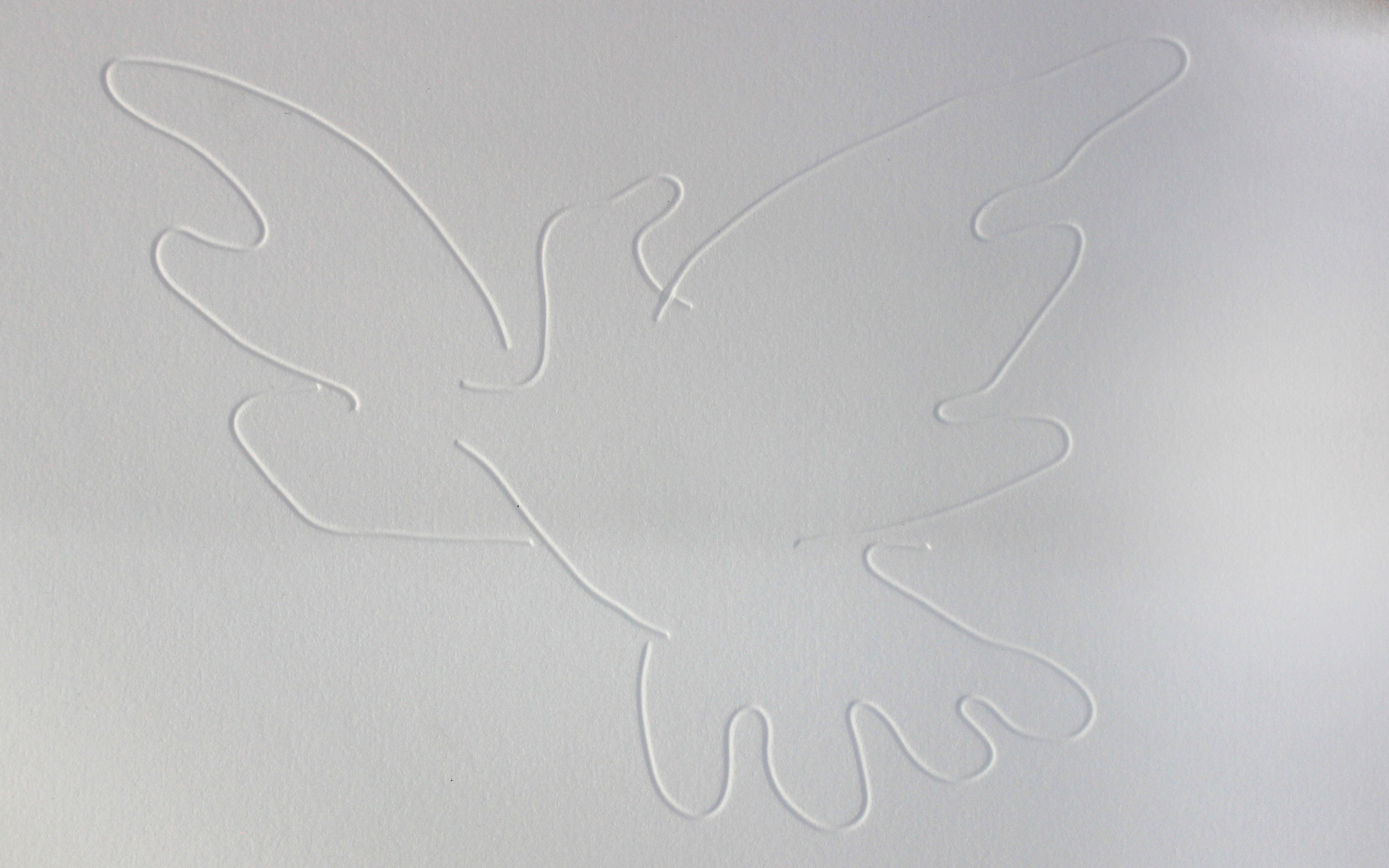
Leonard I. Beerman's Journey to Peace
Born in Altoona, Pennsylvania in 1921, Leonard I. Beerman grew up there and in Owosso, Michigan, a small town near Flint. His father, Paul, was a traveling salesman, and his mother, Tillie, was a homemaker. There were very few Jewish families in the town and an active Ku Klux Klan enforced a 'whites-only' rule after dark. Blacks were not allowed to stay overnight in the town. Leonard remembered hearing the virulent, bigoted rants of Father Coughlin on the radio, and he had an occasional brush with anti-Semitism himself, but an experience on an assembly line at a munitions factory during World War II ignited his desire to understand prejudice and the history of his people. In 1941, shortly before Pearl Harbor, Leonard left his studies at Pennsylvania State University and returned to Michigan to work in an auto-parts factory that had been converted to machine gun production. There he met up with explicit, aggressive anti-Semitism. Some co-workers who had become his friends shunned him when they learned that he was Jewish. Soon other workers began to pick fights with him. "It was that experience of anti-Semitism that prompted me to think about the rabbinate as a place for me." He went to the library and immersed himself in religious and philosophical texts, trying to fathom this hatred and to discover more about Judaism.
Leonard Beerman was accepted to the program at the Hebrew Union College-Jewish Institute of Religion in Cincinnati. He was the first rabbinical student to study in Palestine, and he and his wife, Martha left for the University on Mount Scopus in Jerusalem. When the War for Independence broke out in the new State of Israel in 1947, he joined the Haganah, and noted in a 1997 interview, “It was [there]…that I came more and more to believe that pacifism was a genuinely held conviction of mine.” Ordained in 1949, the new rabbi came to Los Angeles to lead the fledgling congregation of Leo Baeck Temple, named after the eminent German theologian, scholar, and progressive rabbi (1873–1956). As Rabbi Beerman put it, he and the synagogue “grew up together." He served there for thirty-seven years until his retirement in 1986. Under his leadership, the temple became a beacon for social justice and activism, known as a place where controversial issues were engaged and openly discussed. He could always be counted on to take a stand against injustice and human suffering, courageously speaking out about the Communist scare and “witch hunts” of the 1950s, actively participating in the Civil Rights movement, protesting against the Vietnam War and counseling conscientious objectors. advocating for better wages for the working poor in our country and better living accommodations for the poor and homeless, and expressing deep concern for the lives and welfare of Palestinians. Cesar Chavez spoke from his pulpit, as did Daniel Ellsberg just before his Pentagon Papers trial. In 1979, he and Reverend George Regas of All Saints Church in Pasadena co-founded the Interfaith Center to Reverse the Arms Race, an organization that awakened religious leaders and, through them, their congregations, to the realization that the abolition of nuclear weapons is a profoundly moral issue. Building connections with those of other religious faiths has always been an essential facet of his leadership.
For years, Leonard Beerman worked for peace and justice and brought conscience and faith to bear upon many important issues of our time. The legacy of his integrity, compassion and longtime commitment to alleviating the plight of all those who are “despised…humiliated…unwanted”, to standing up against “whatever is miserable or inhumane” continues today.
Portions of the above were adapted from a speech by Reverend George Regas
“Human existence is coexistence. Before I can realize my own freedom, my independence, my humanity, I must join the fellowship of others, my people, humankind.”
RABBI LEONARD I. BEERMAN
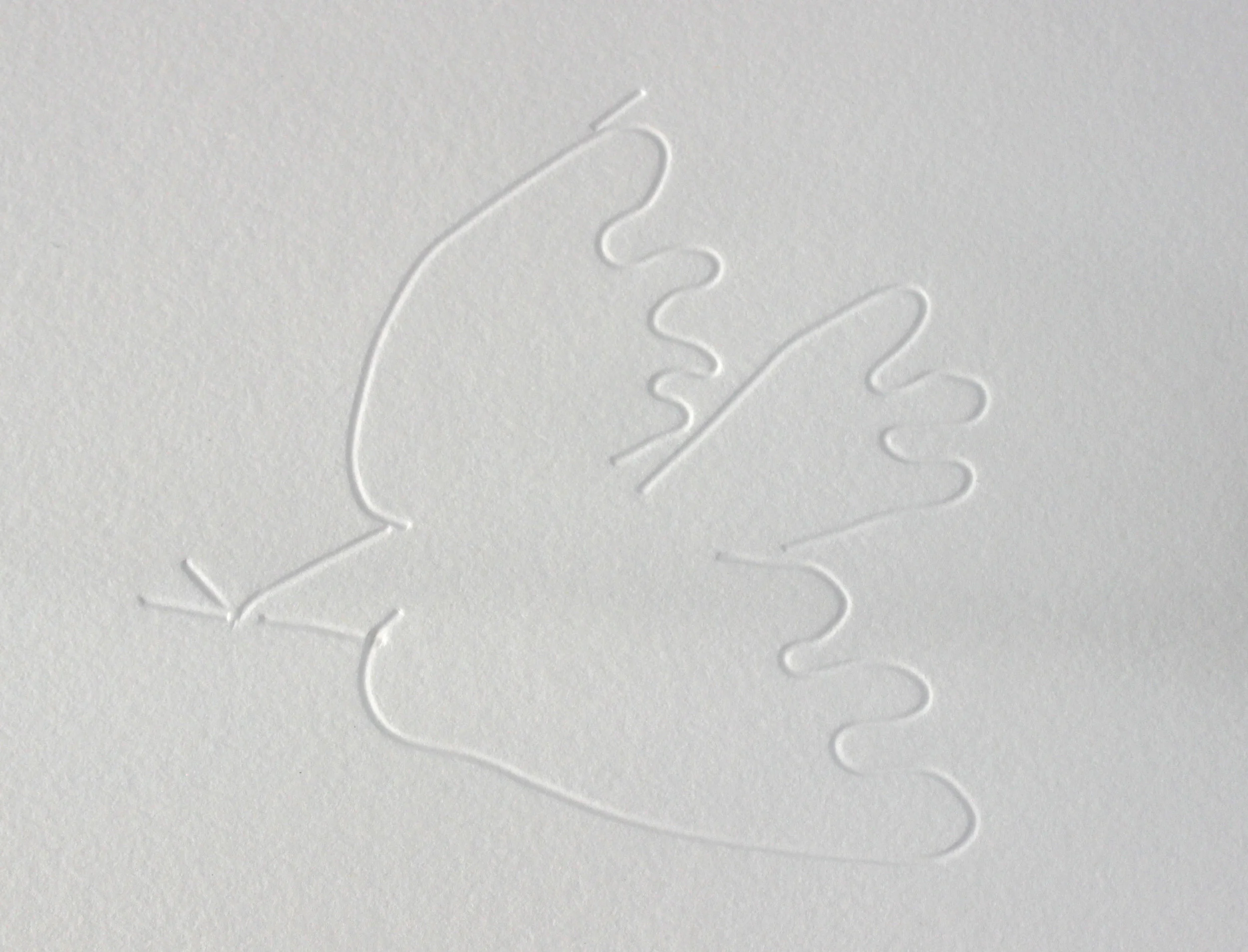
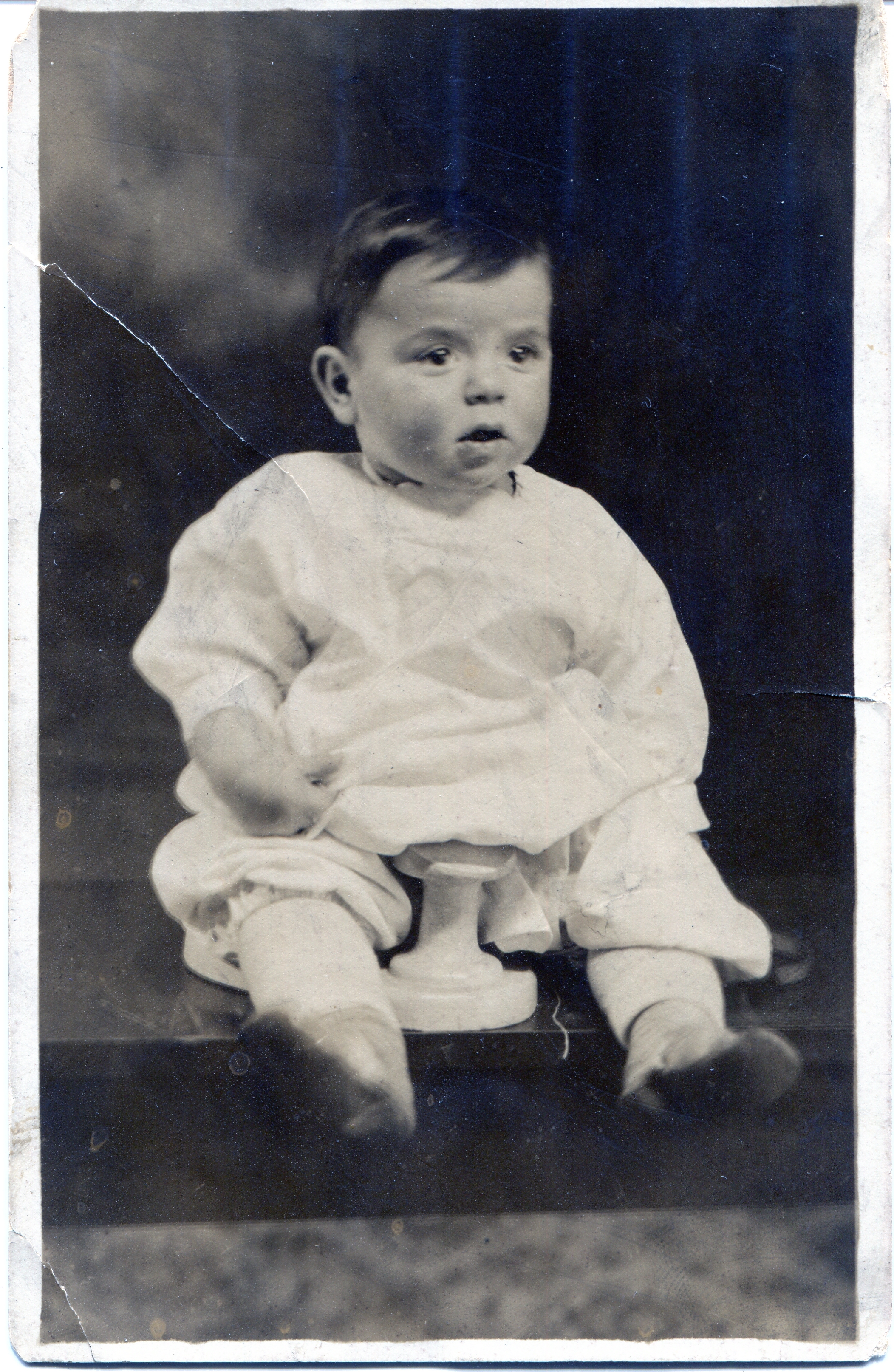
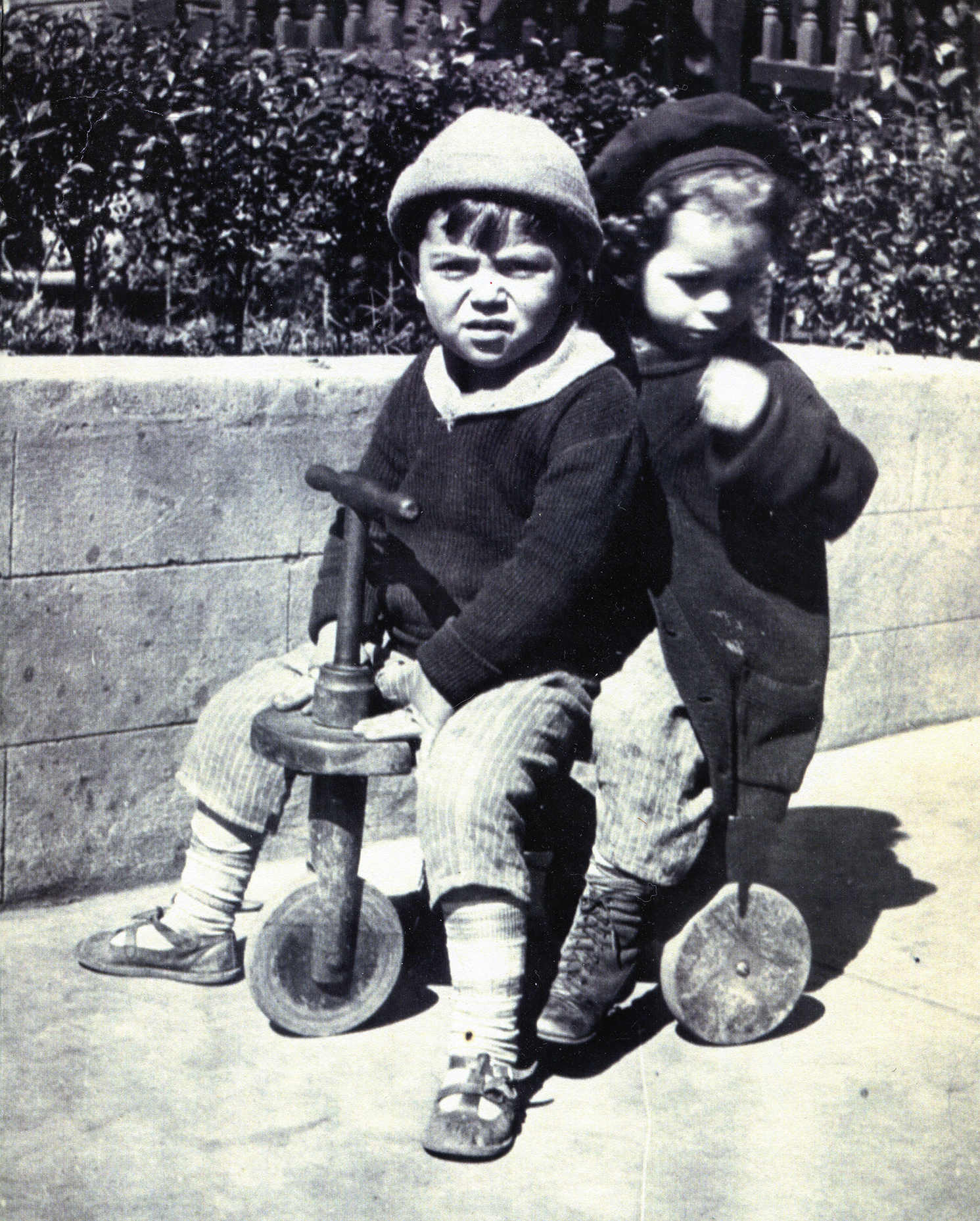
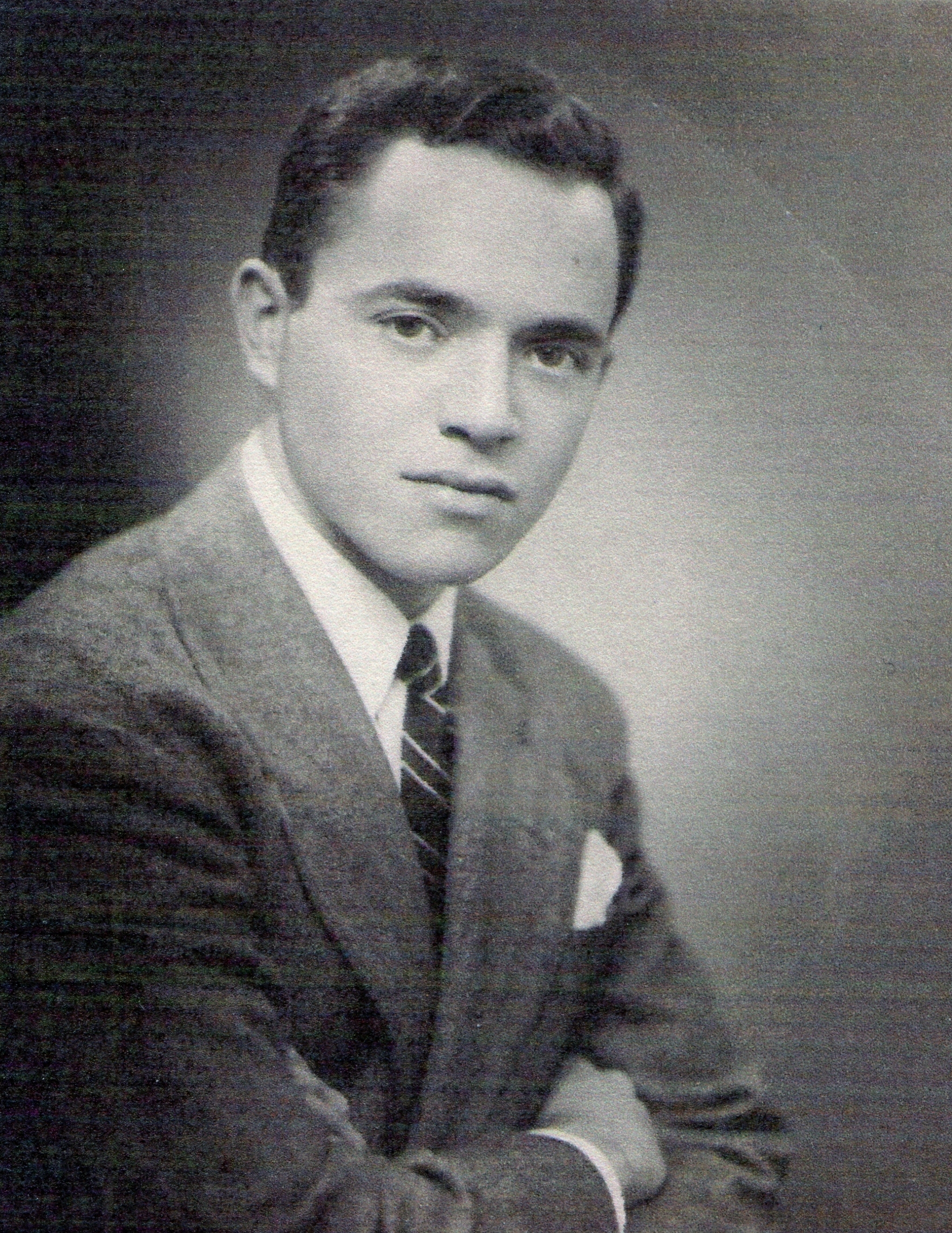
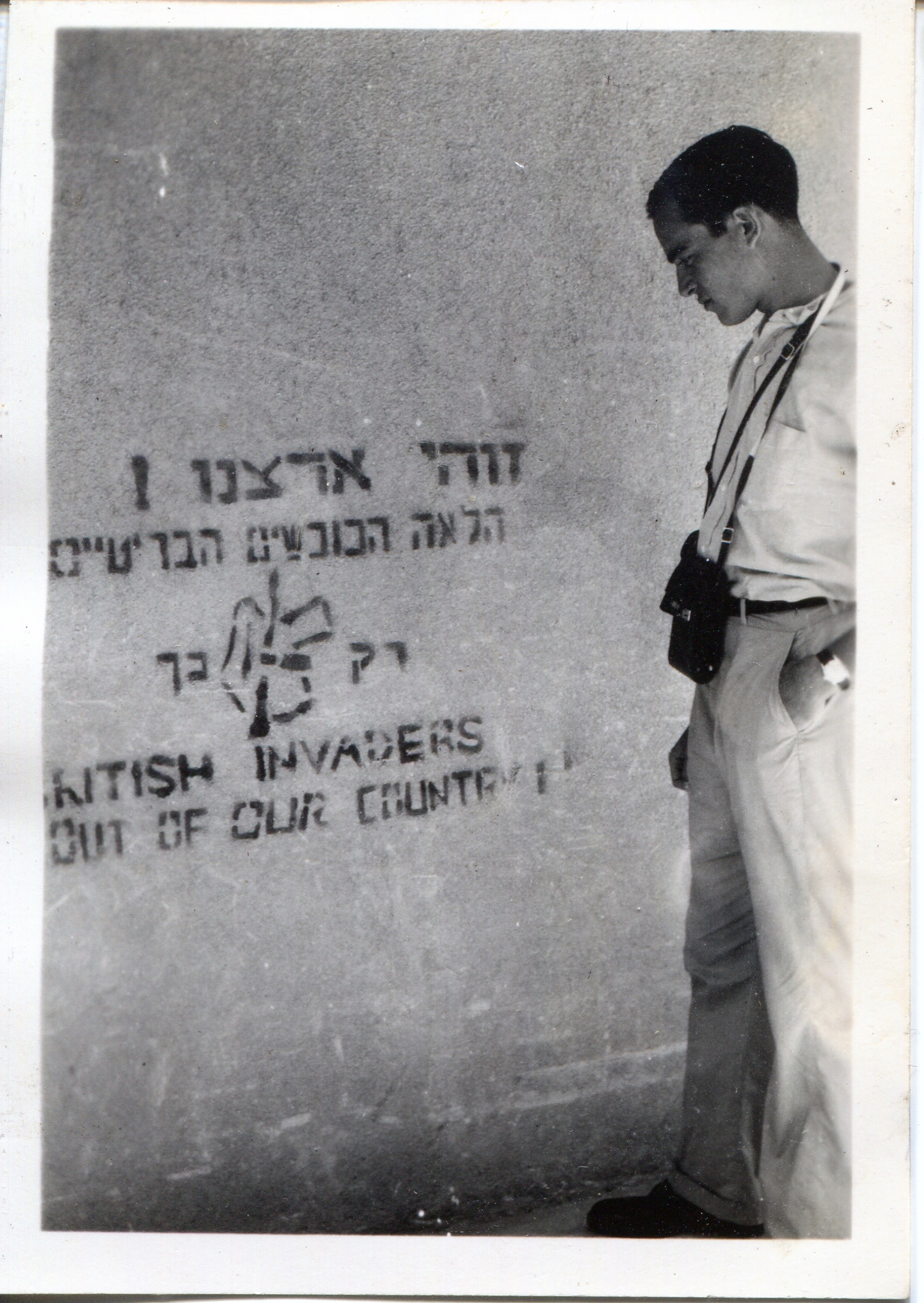
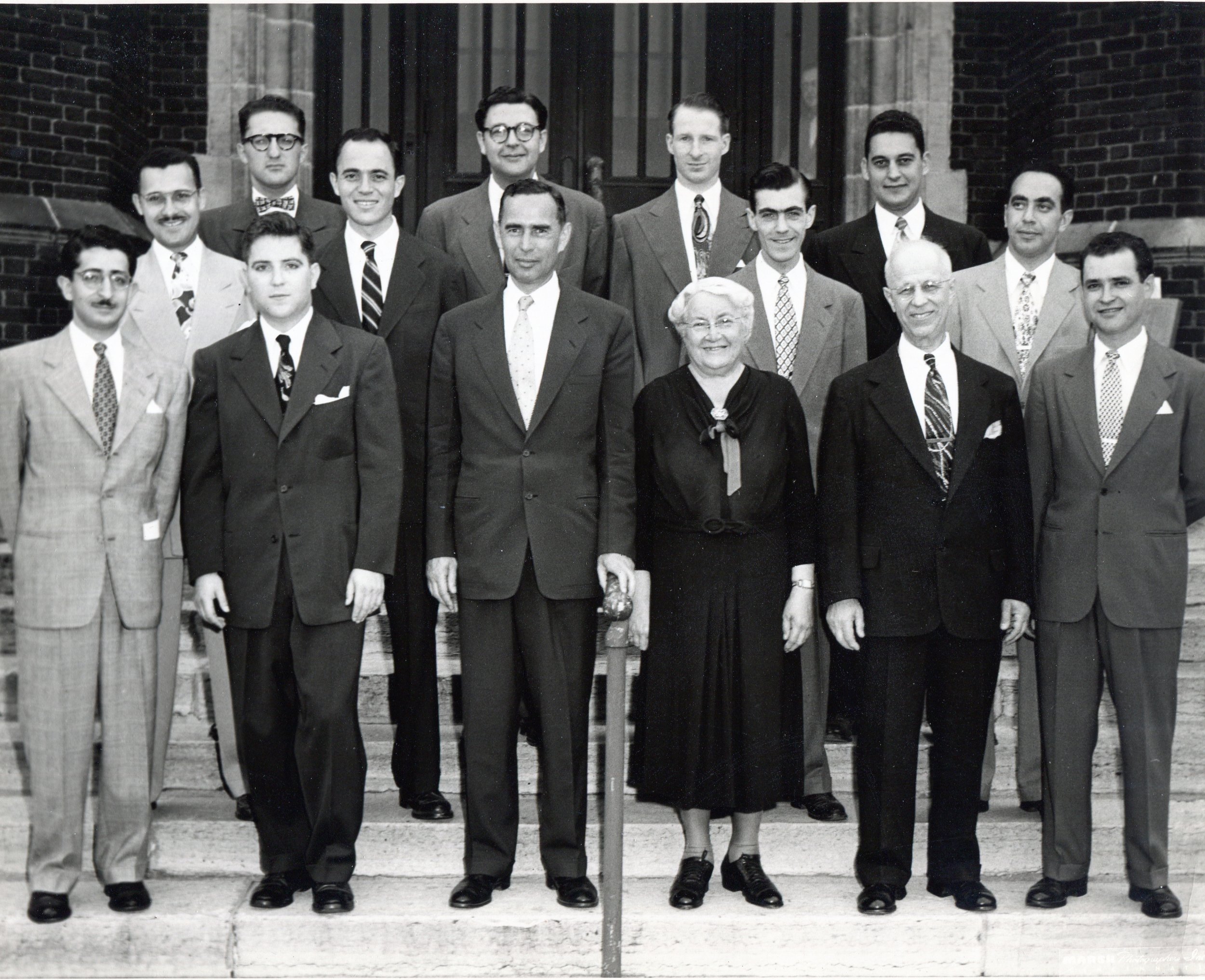
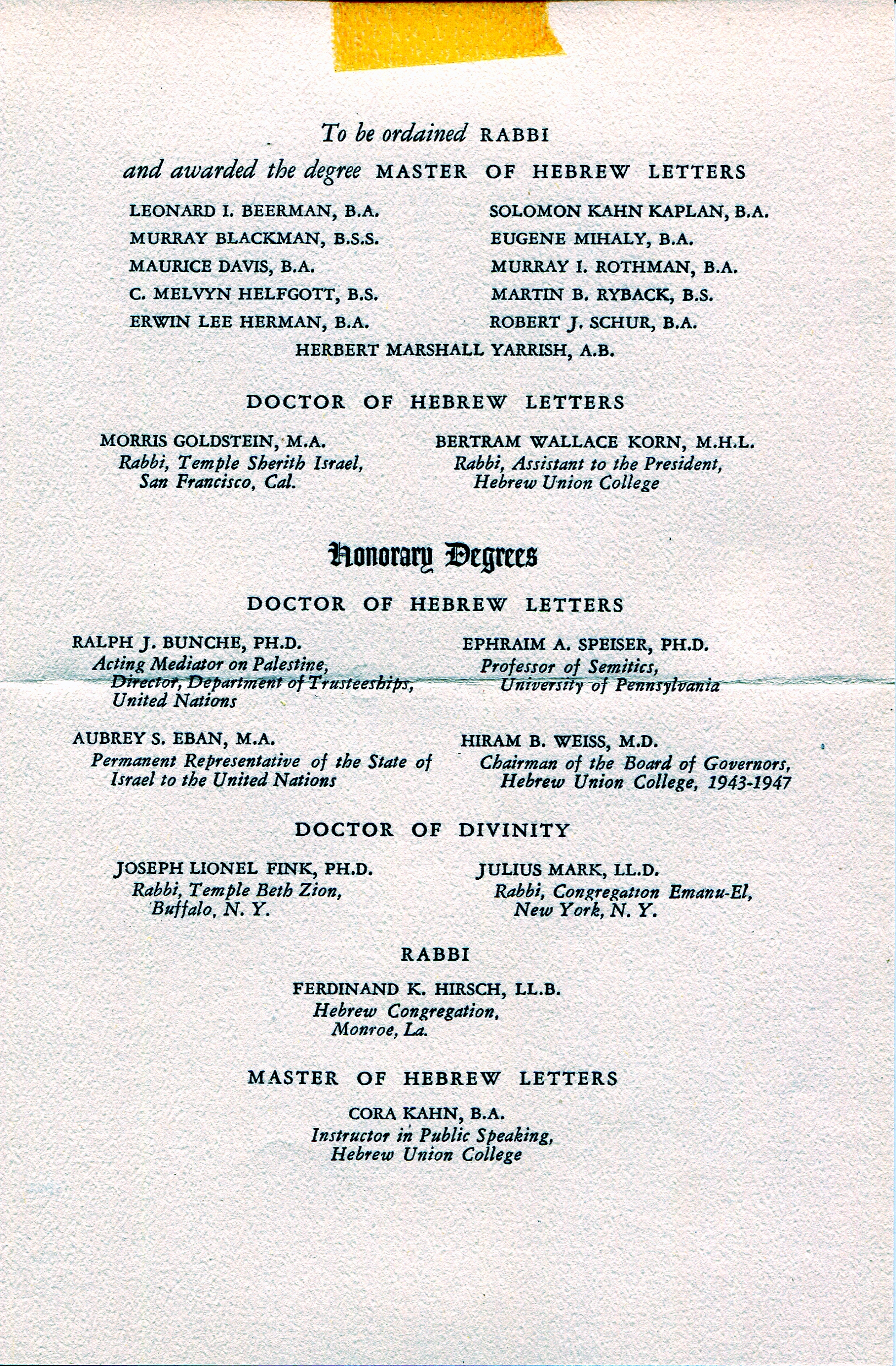
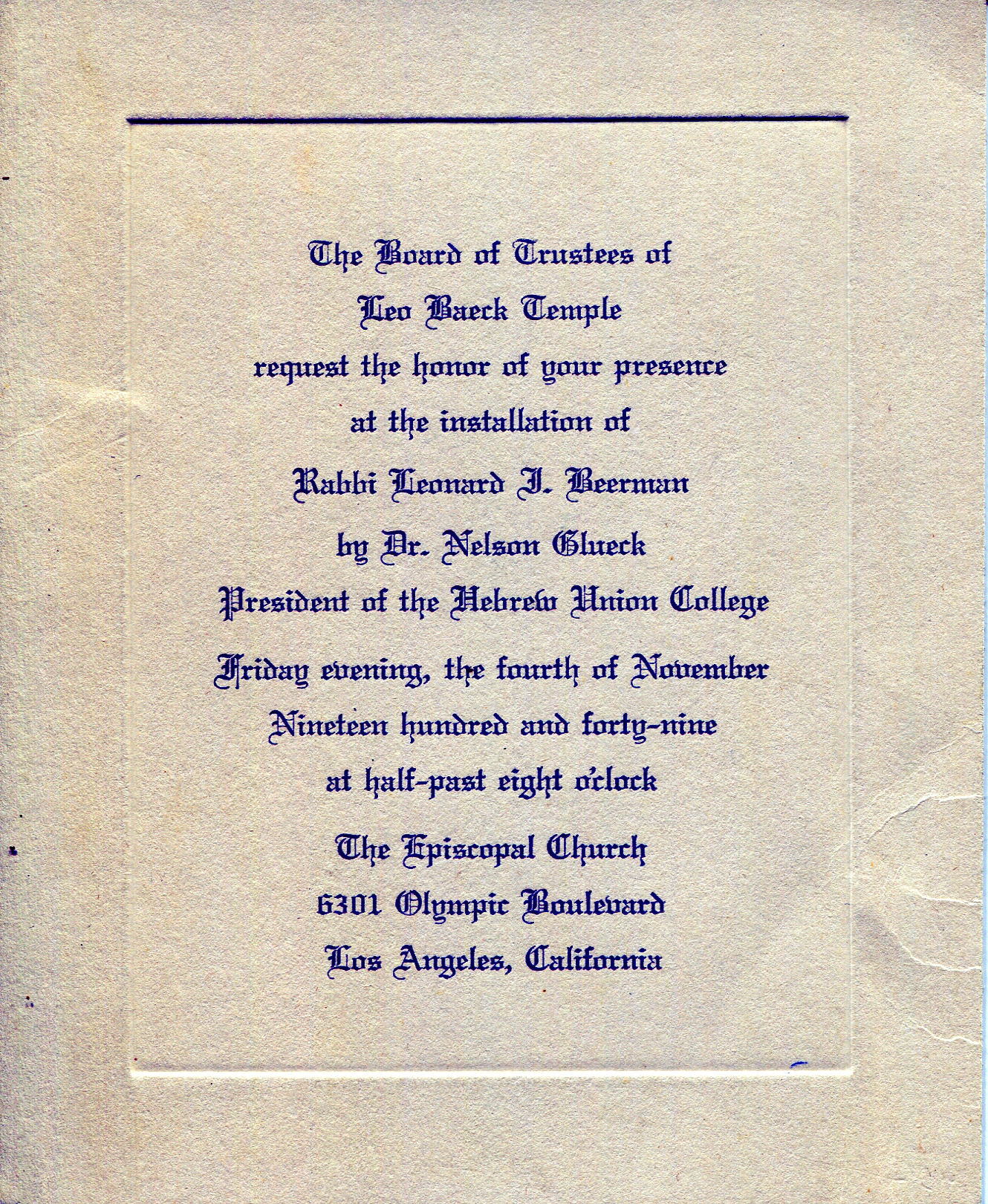
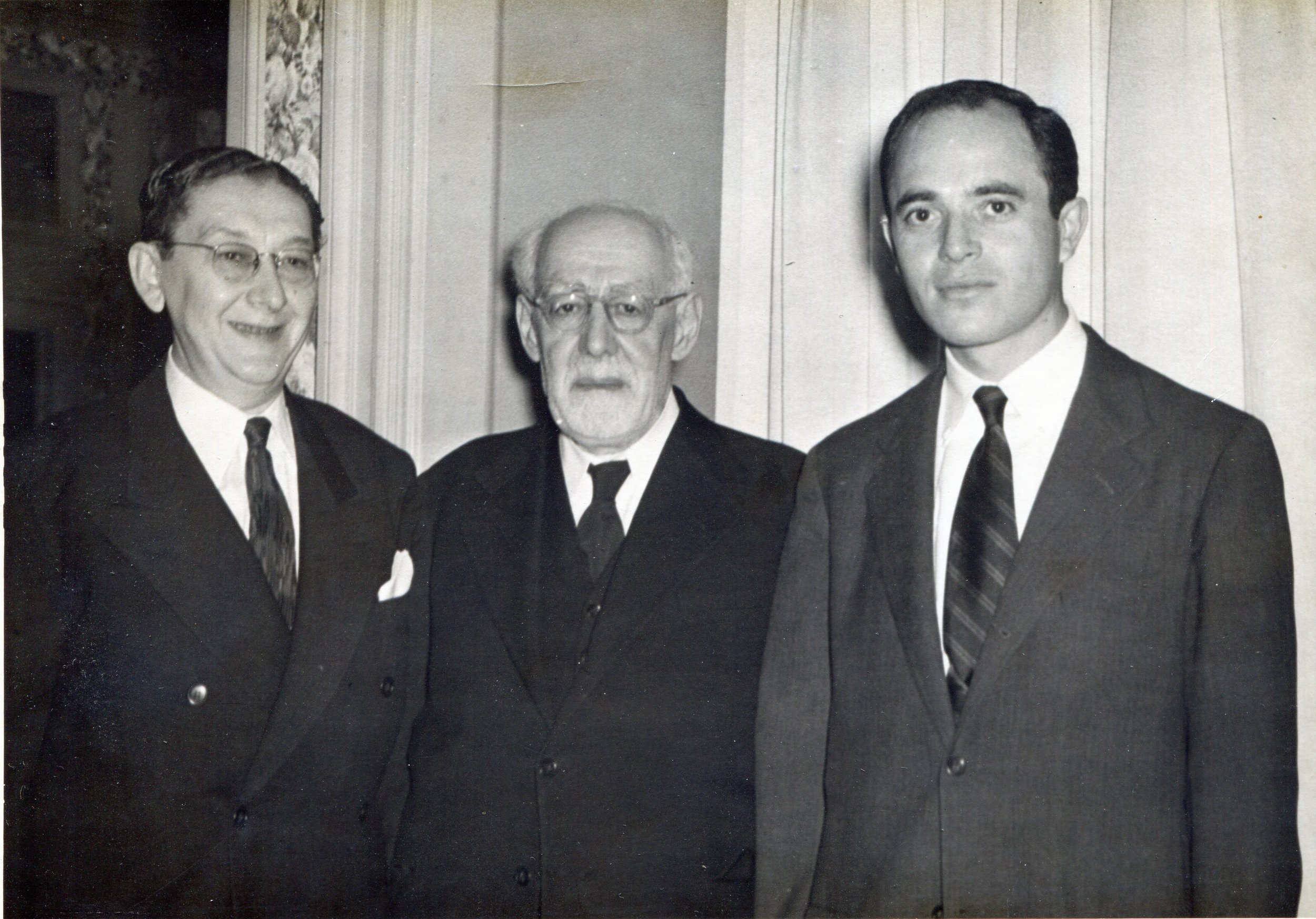
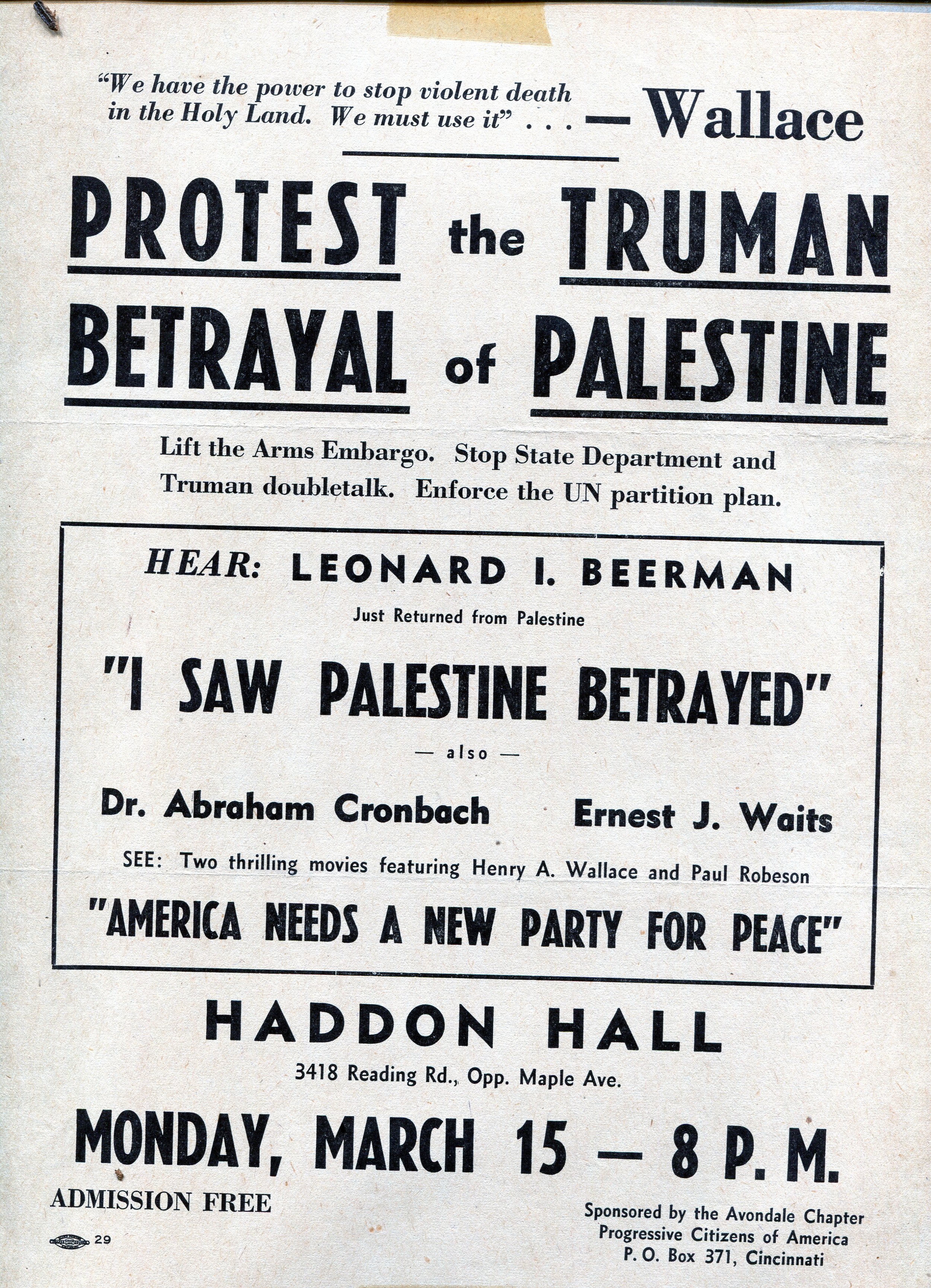
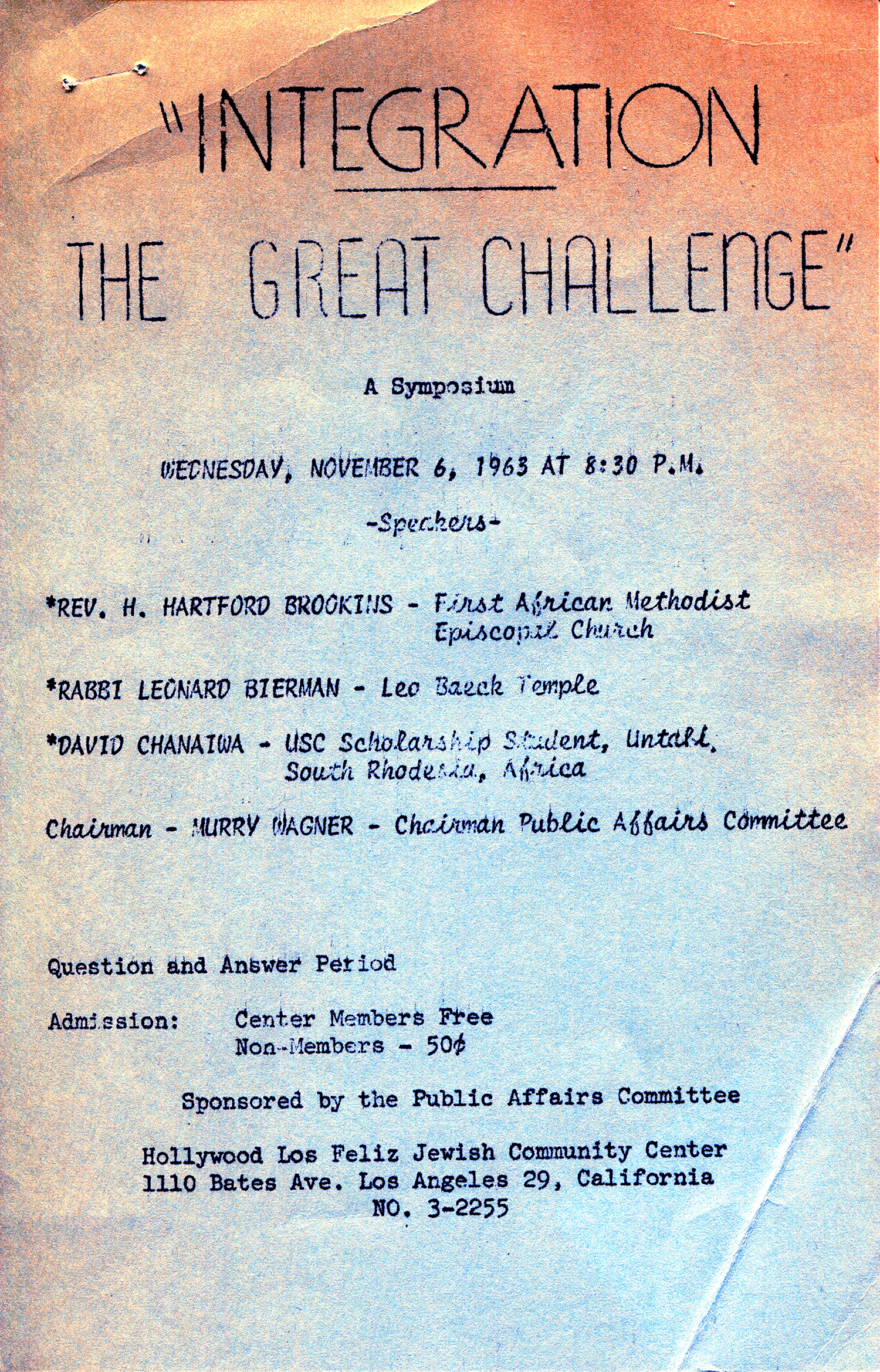
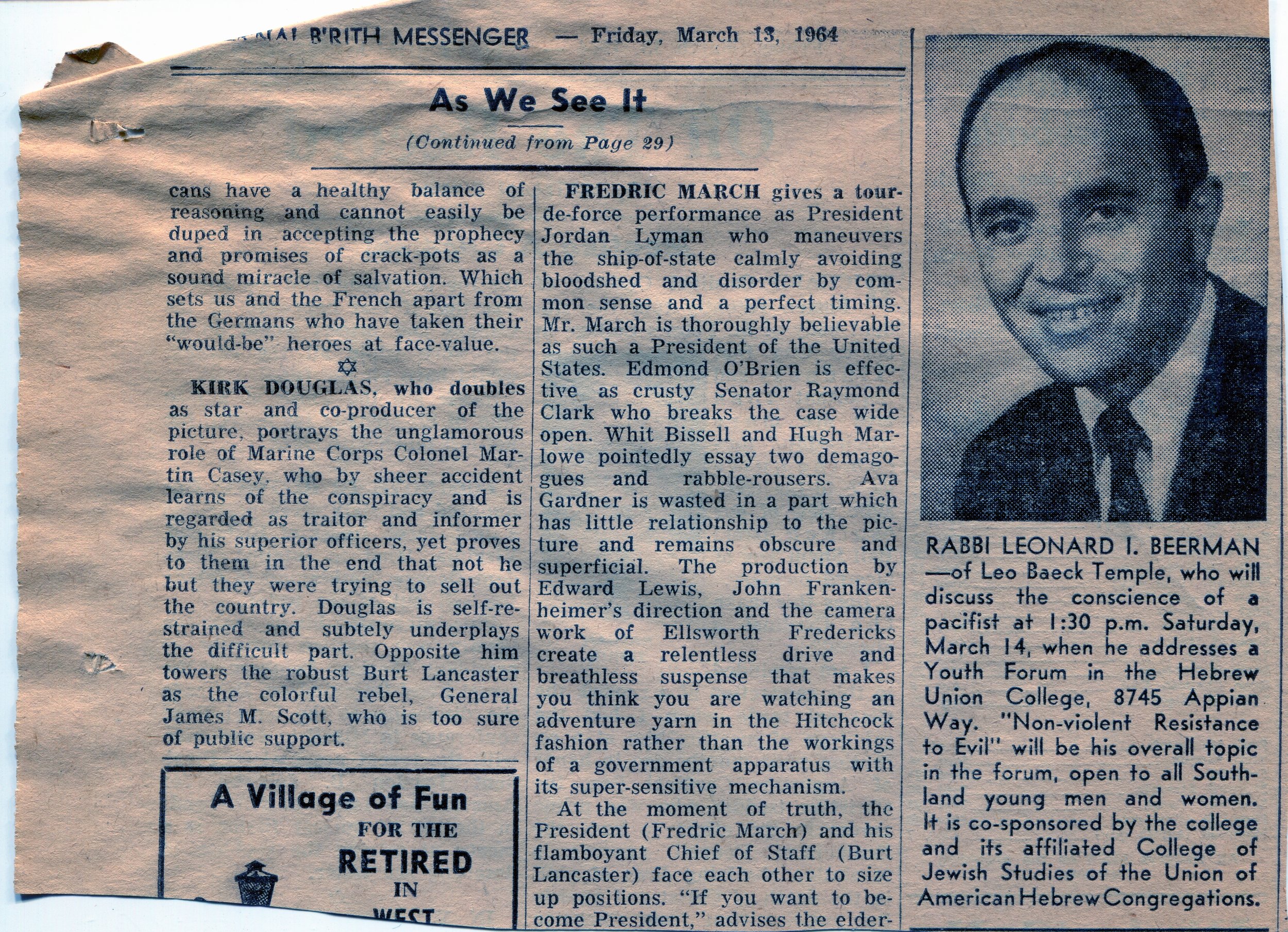
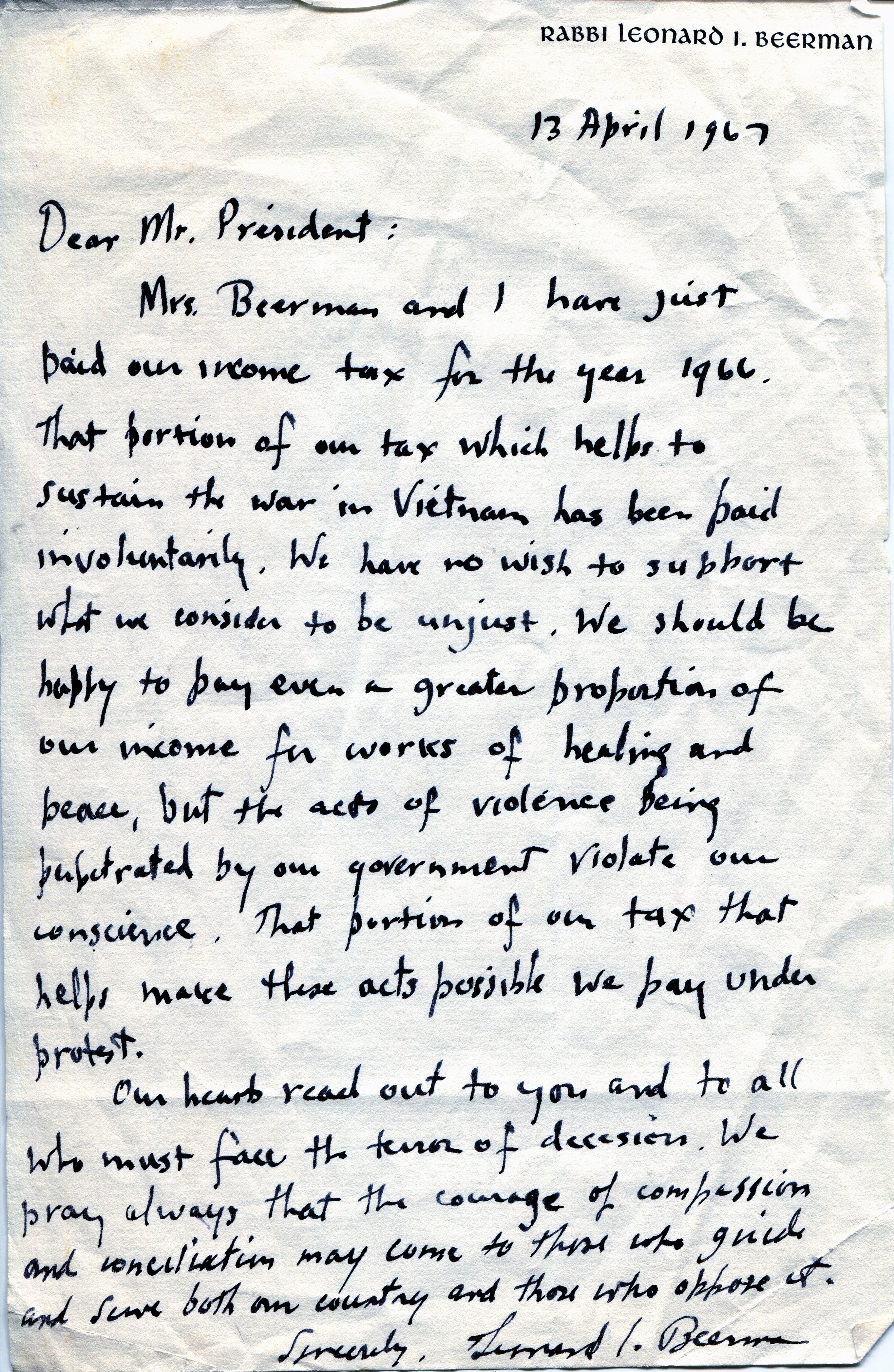
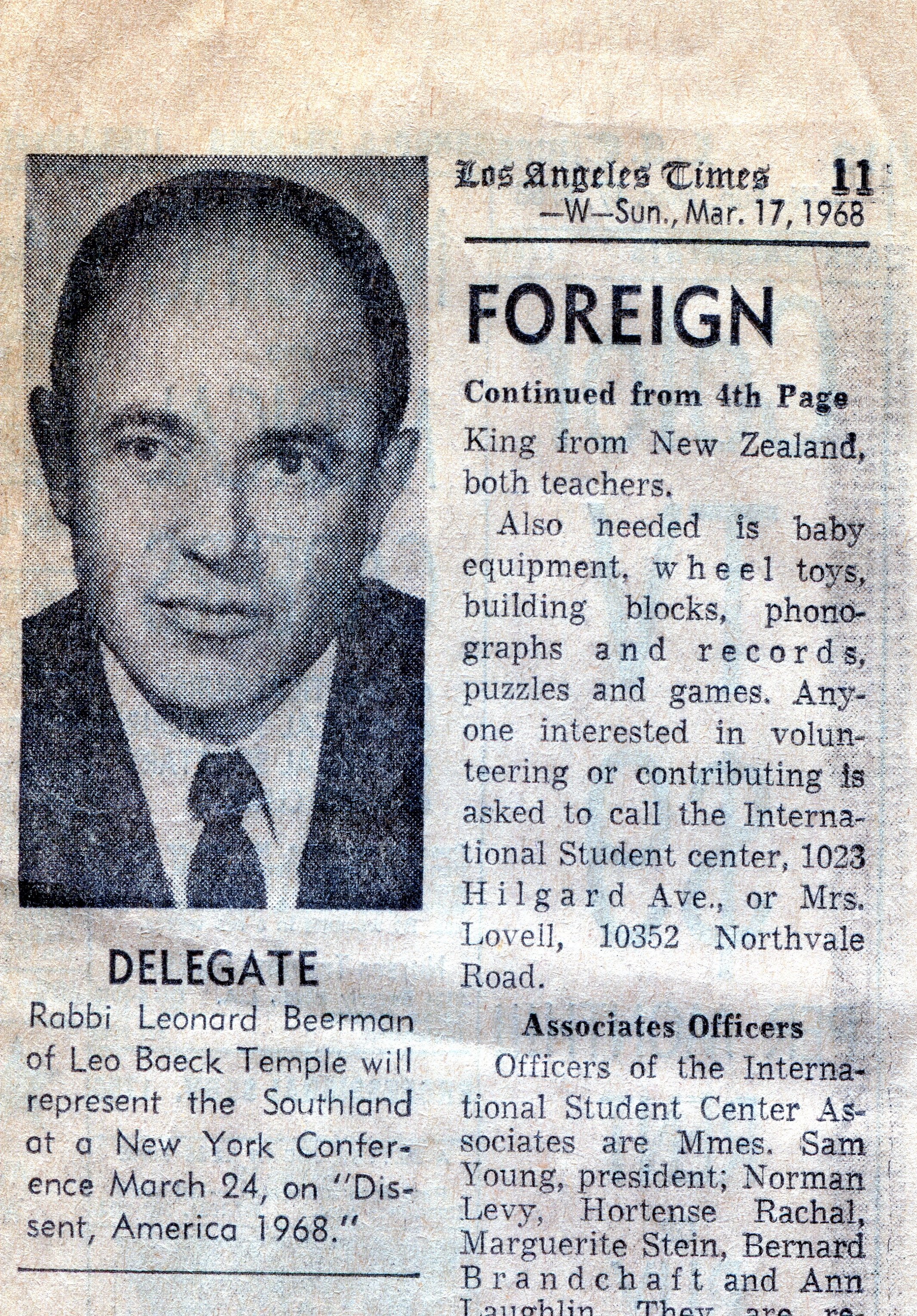
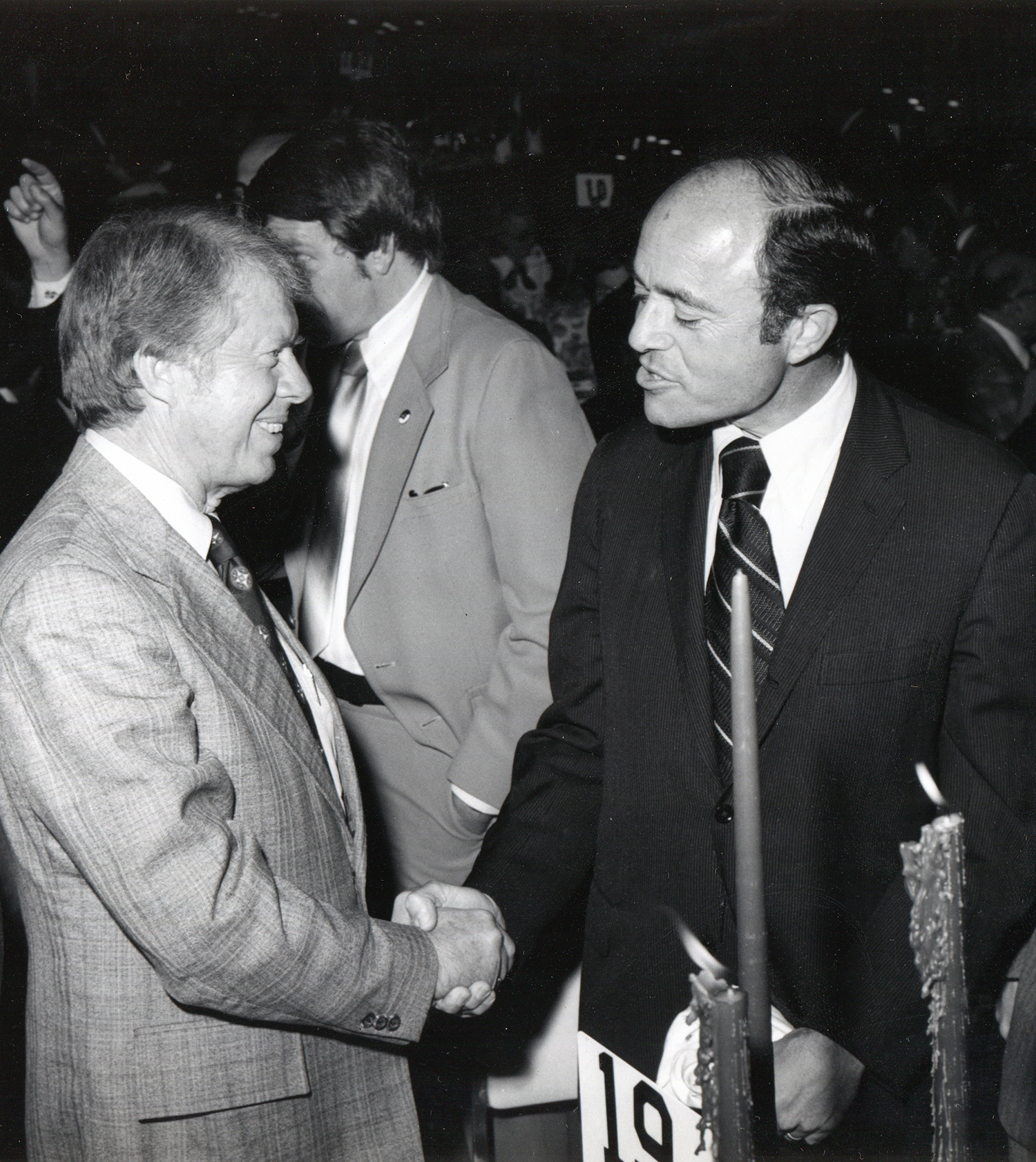
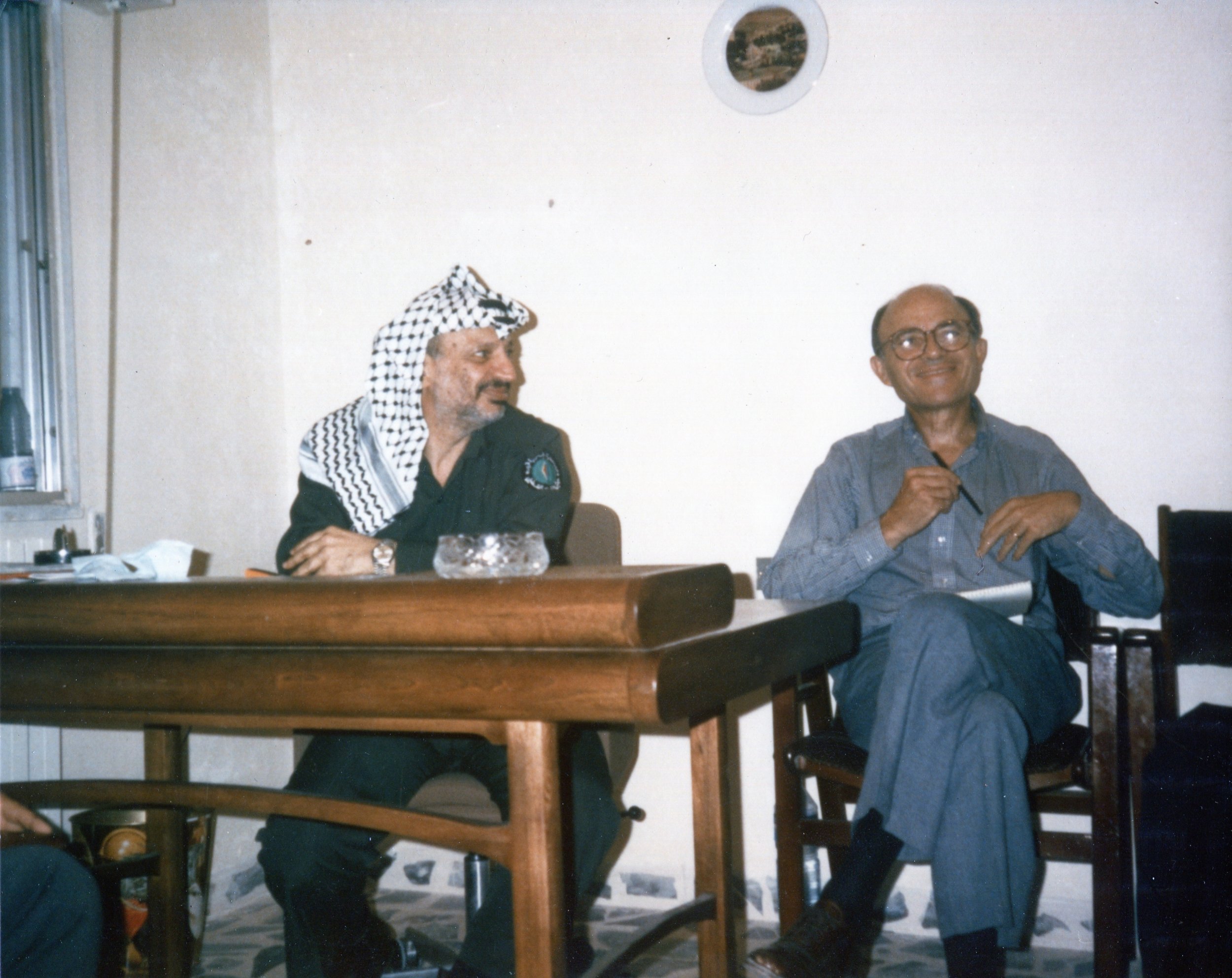
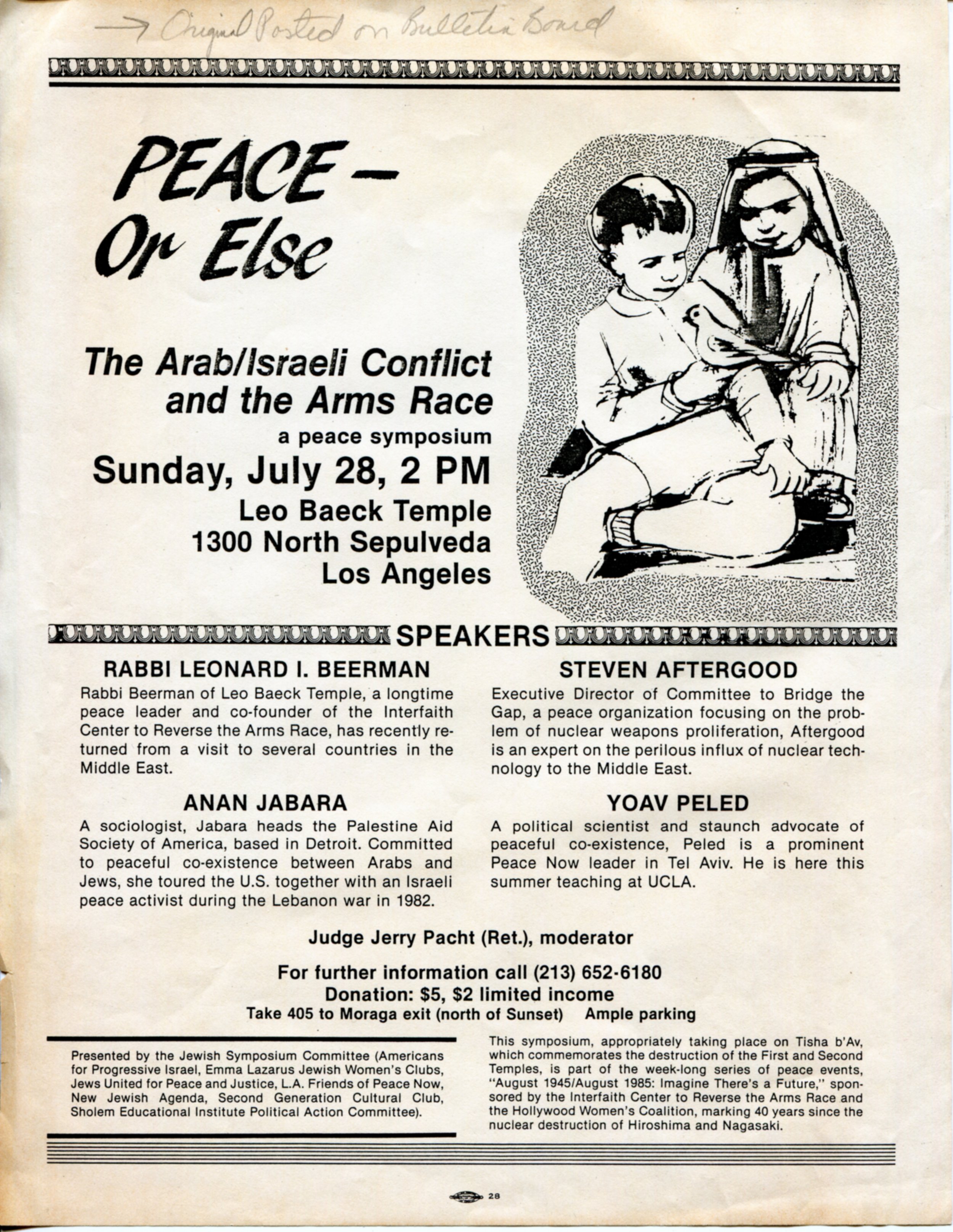
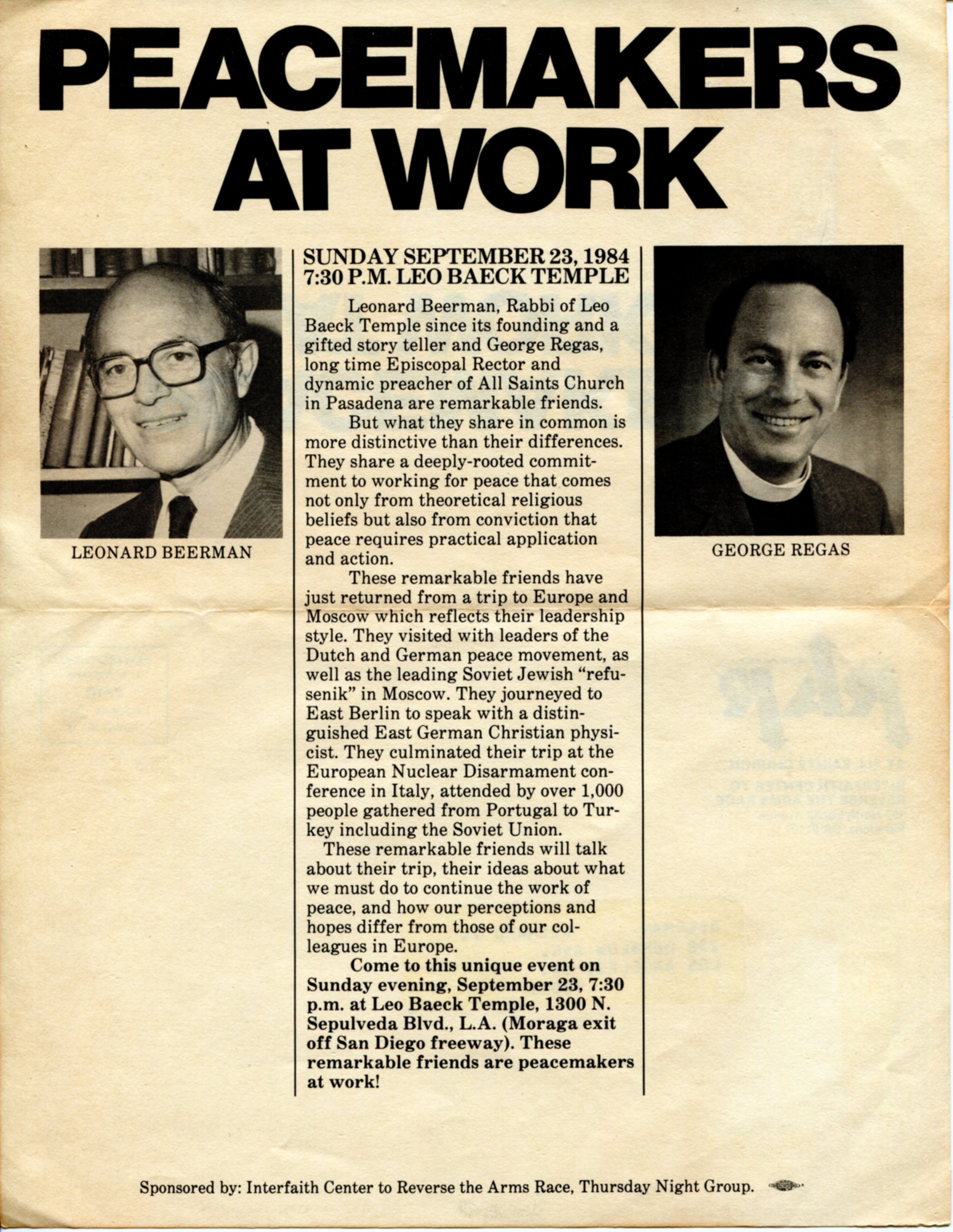
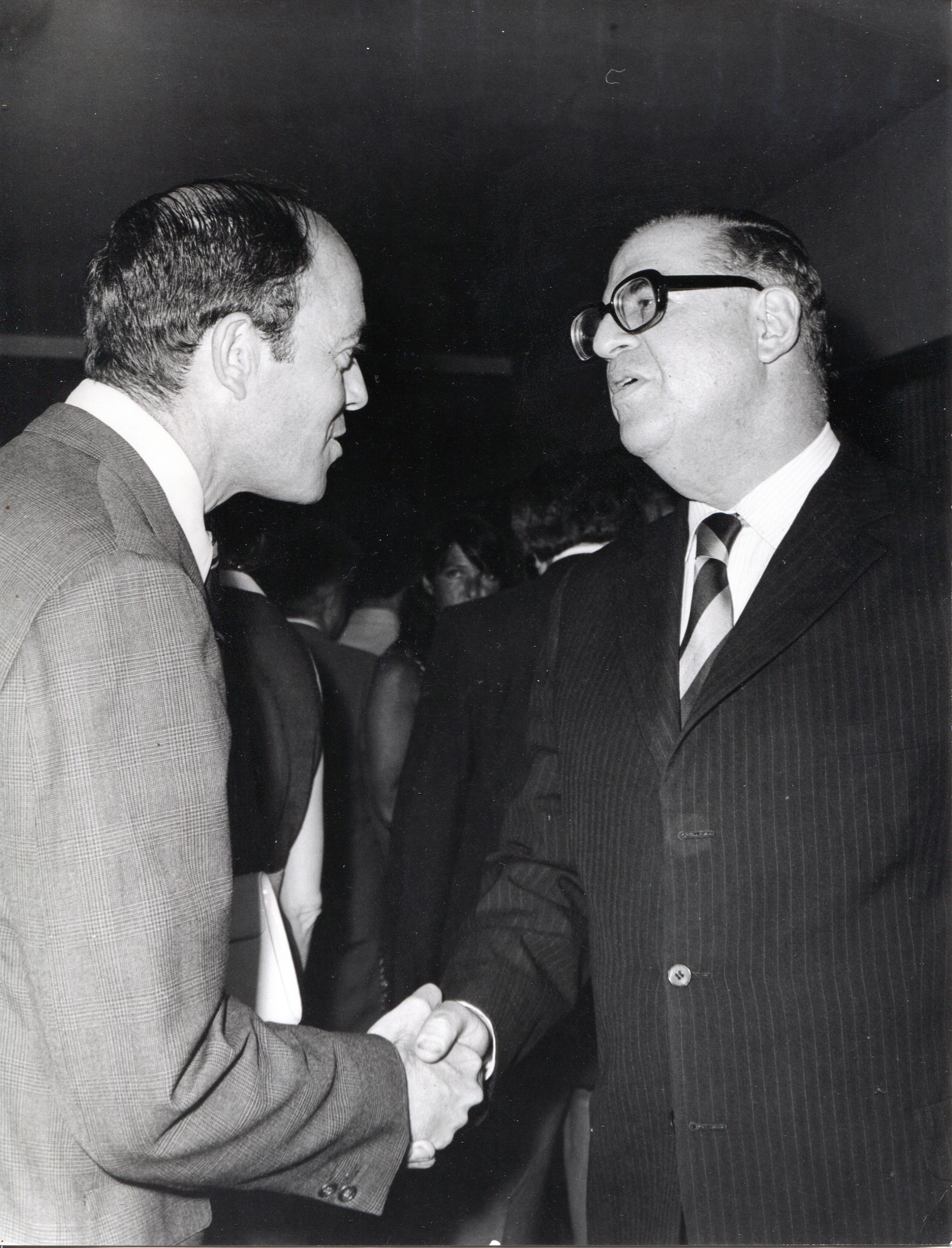
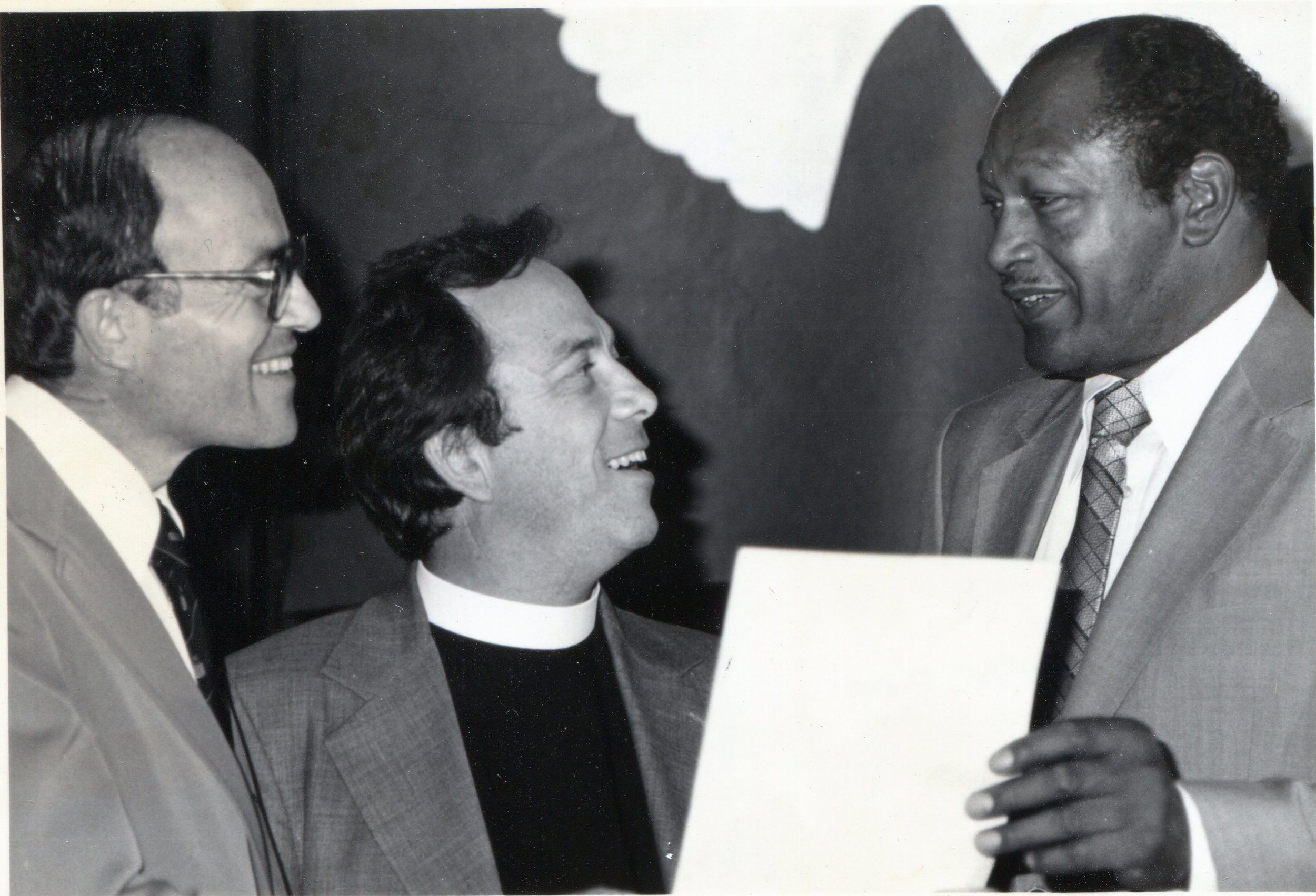
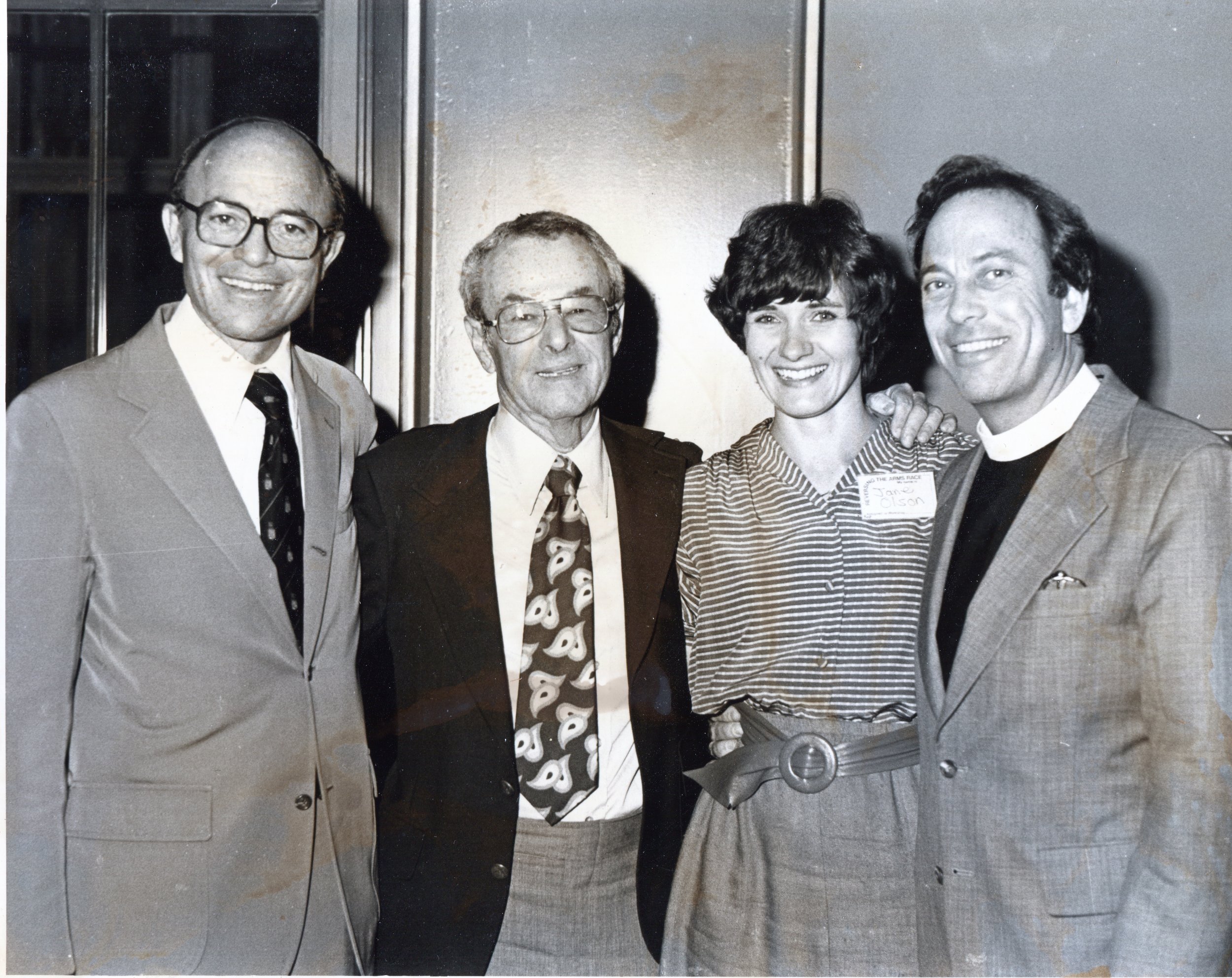
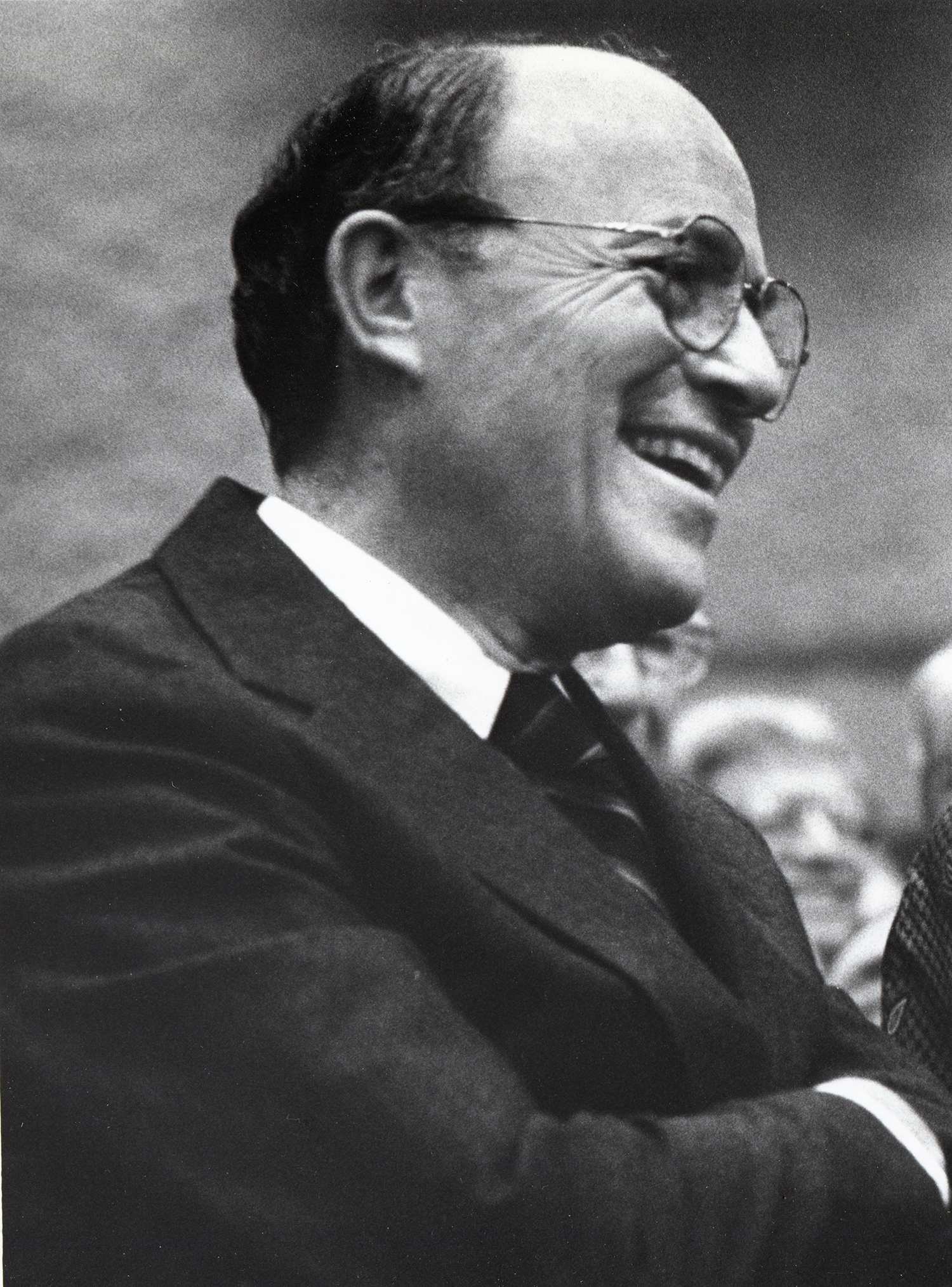
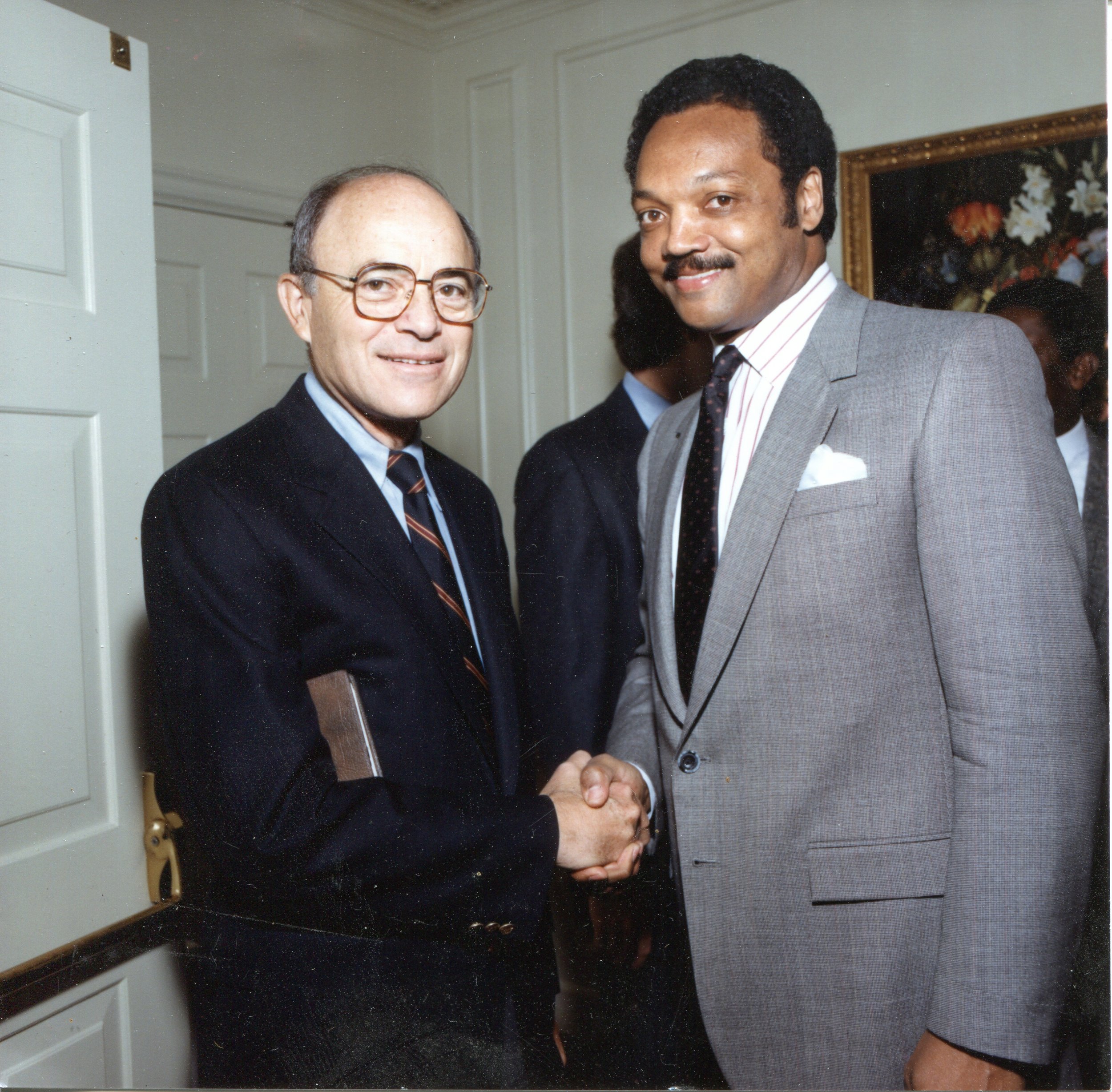
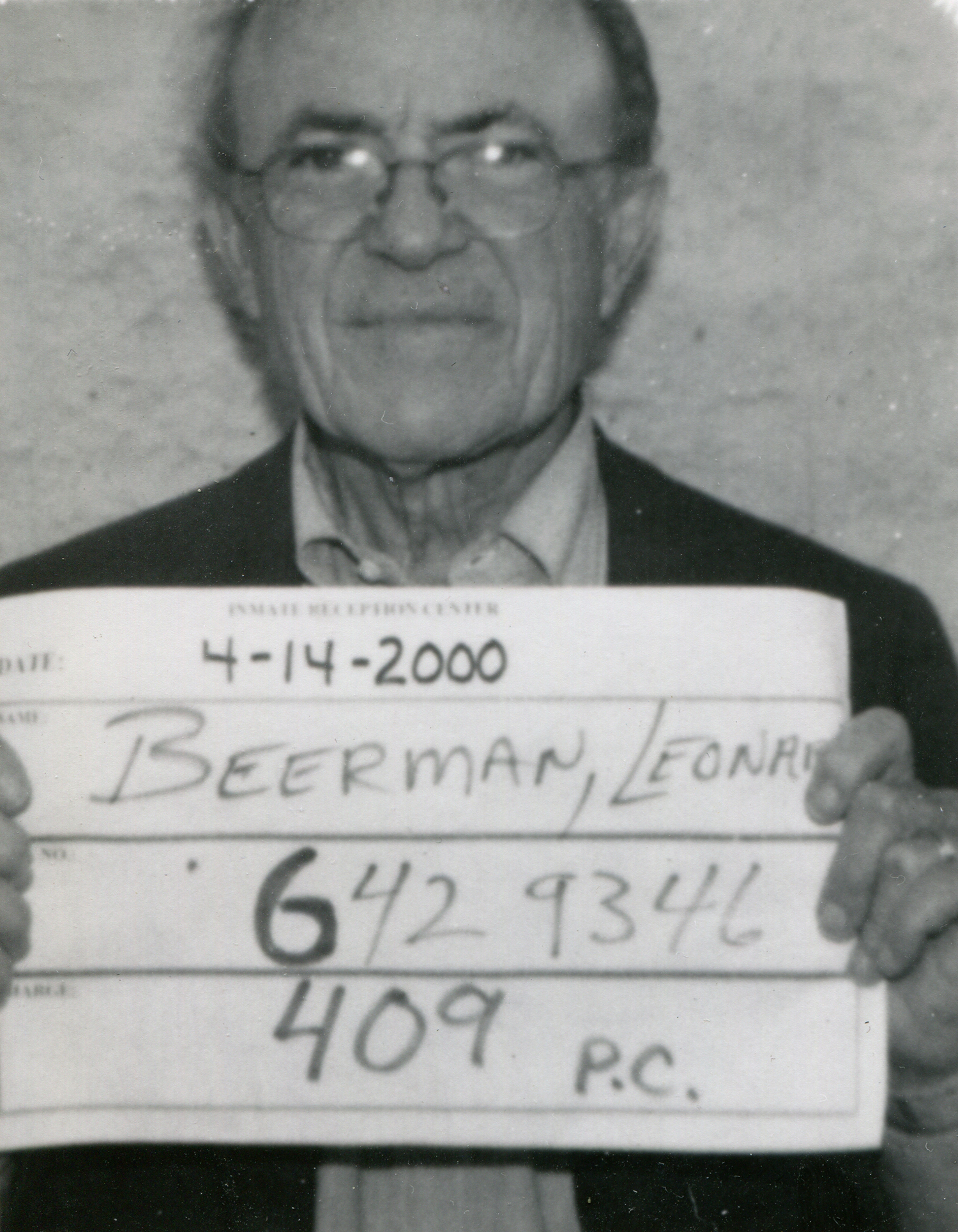
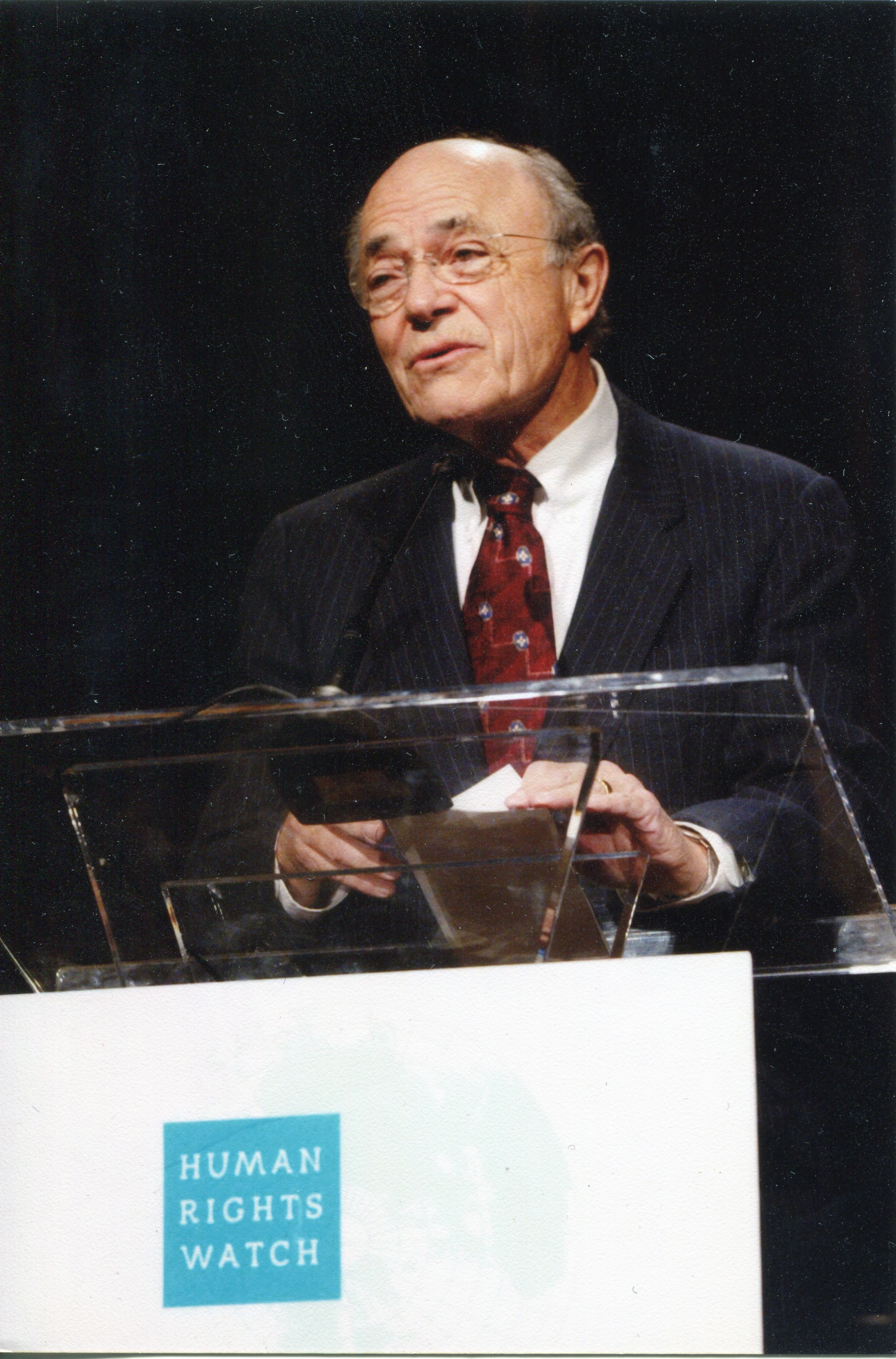
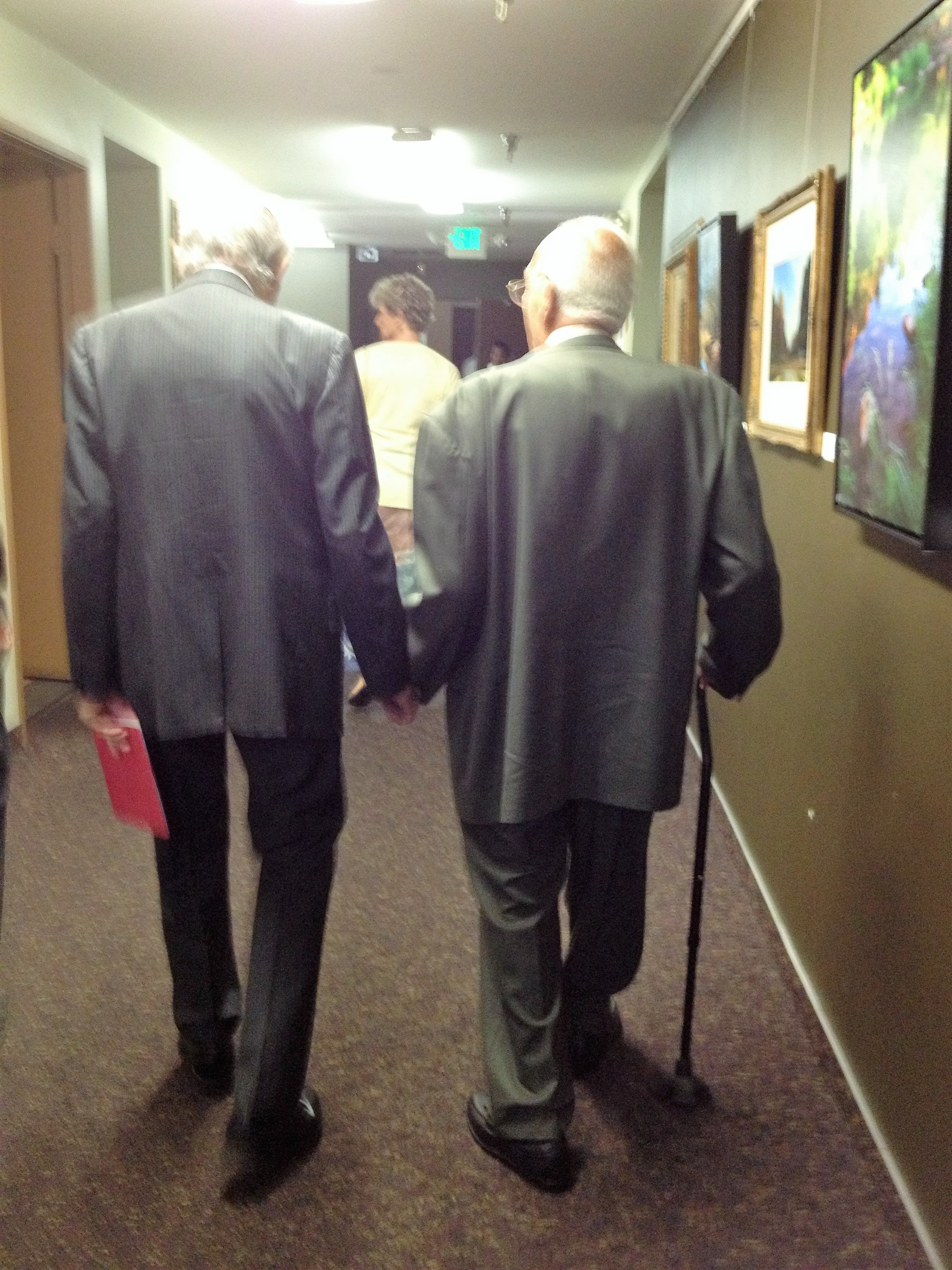
“The way to give meaning to our life is to do what we can to abate its misery, to heal its wounds, to be comrades in the only war worth fighting: the battle to extend the domain of love and reconciliation and justice in the world, and thus to declare ourselves for the continuation of life.”
Rabbi Leonard I. Beerman

The following section features a changing selection of sermons, speeches and interviews.
“The fulfillment of the task, the fulfillment of life is in the here and now. The solutions will not be found in heaven. They will be found here on earth. And the message of religion is not designed to make us comfortable, but to make us alive to our responsibility.”
Rabbi Leonard I. Beerman


